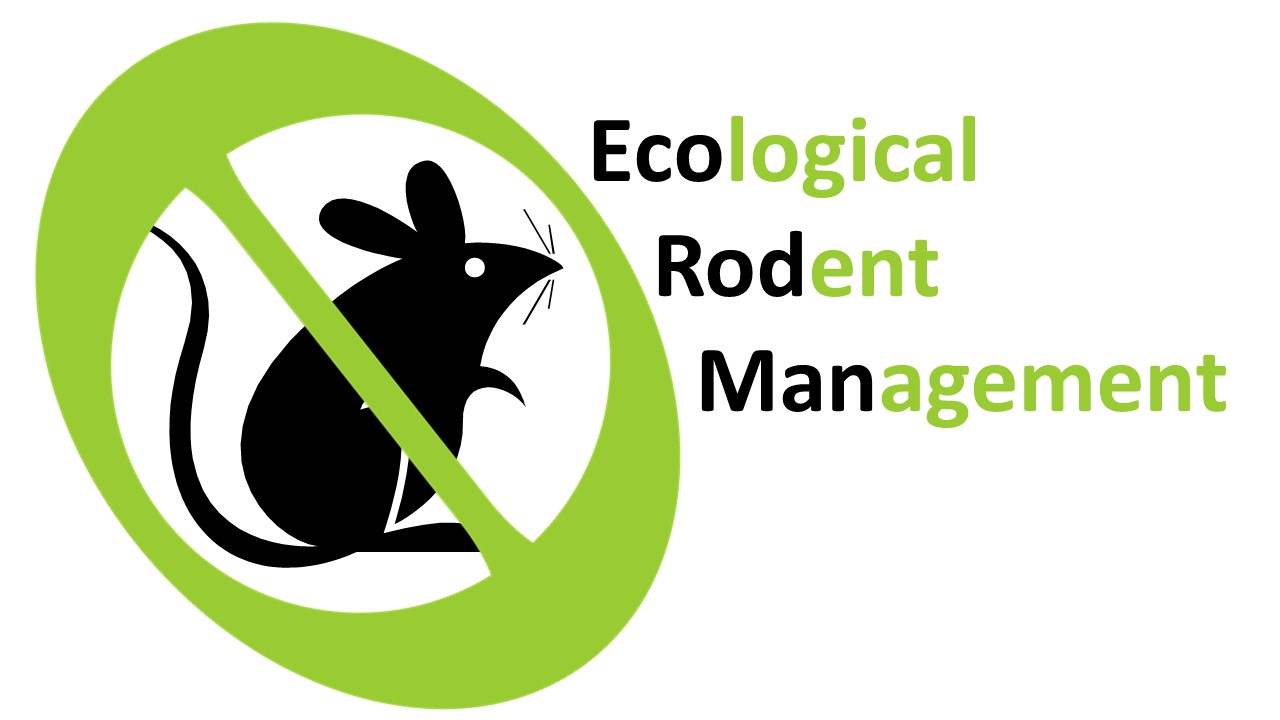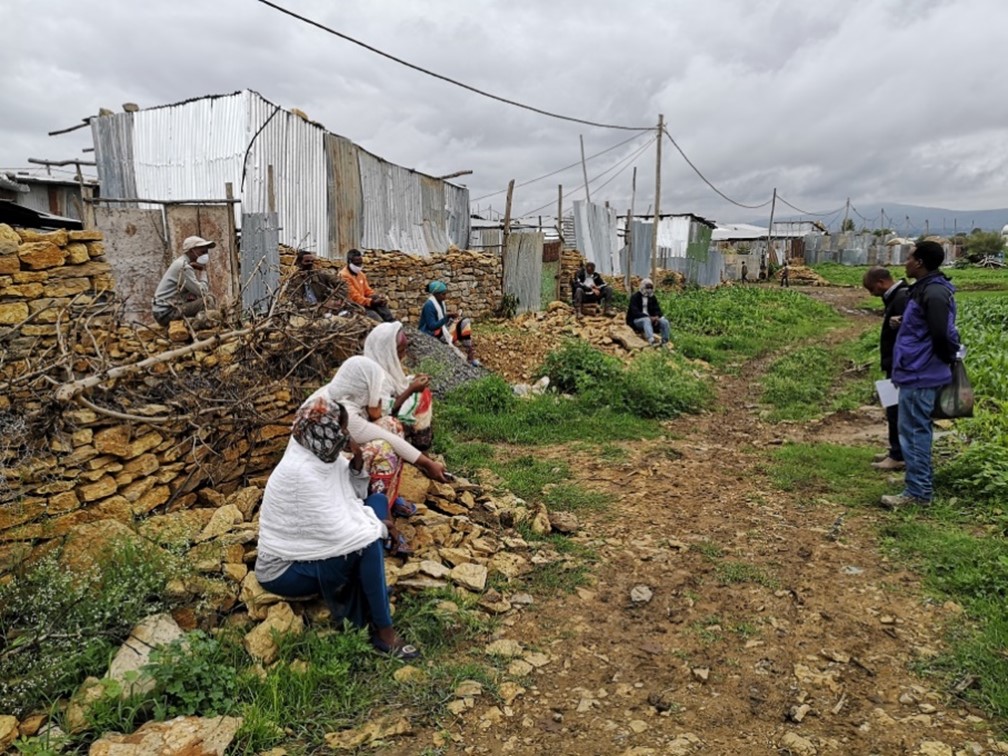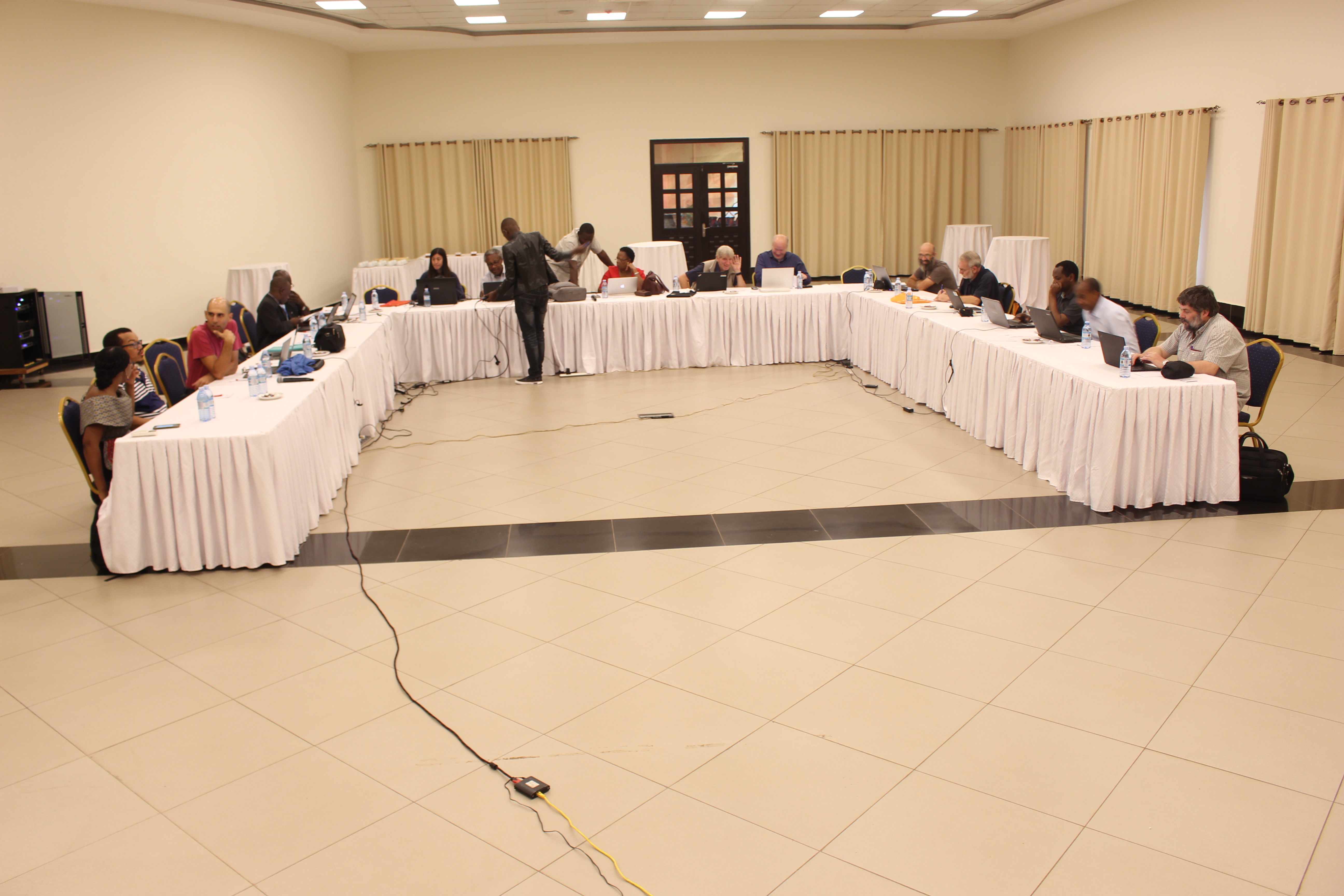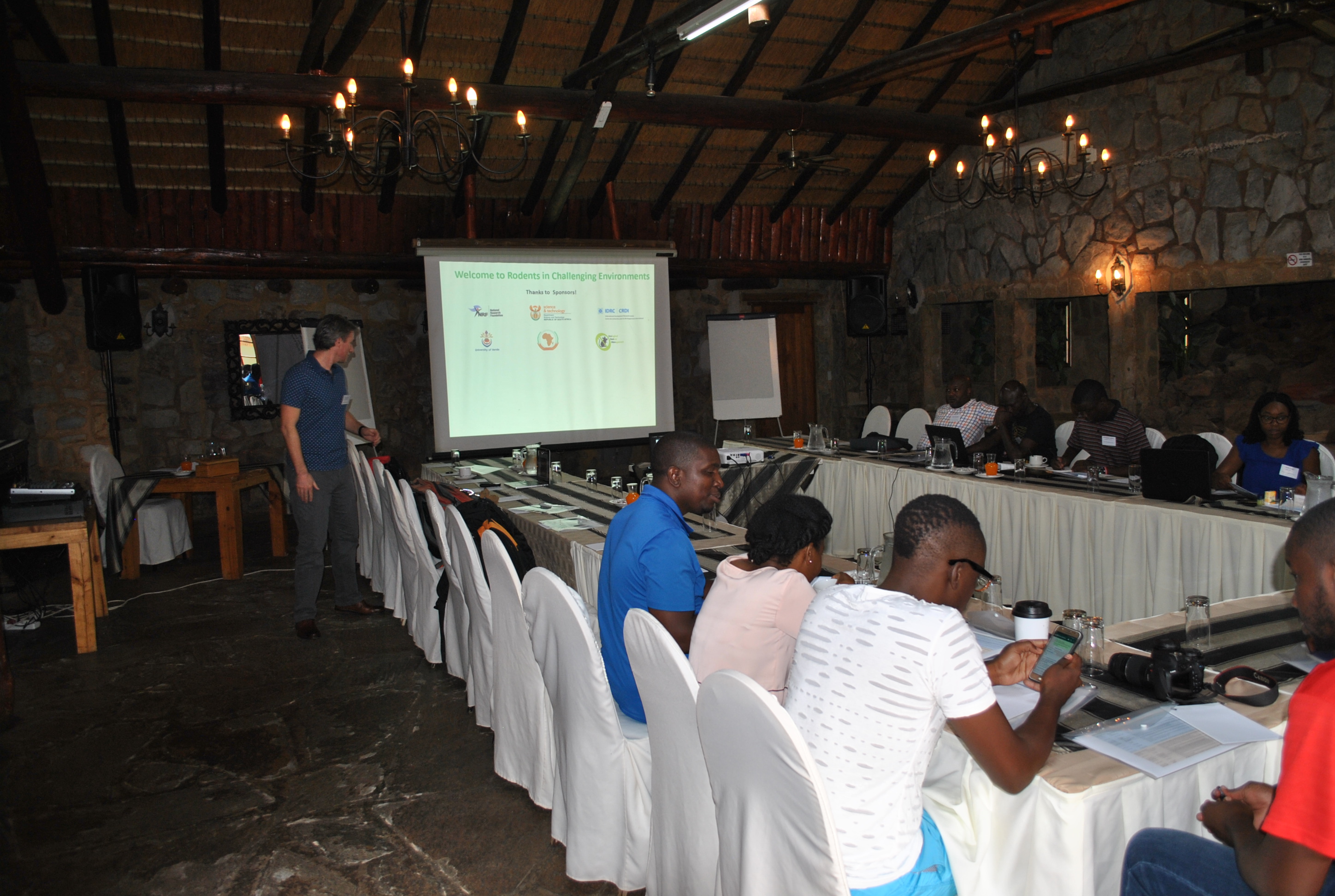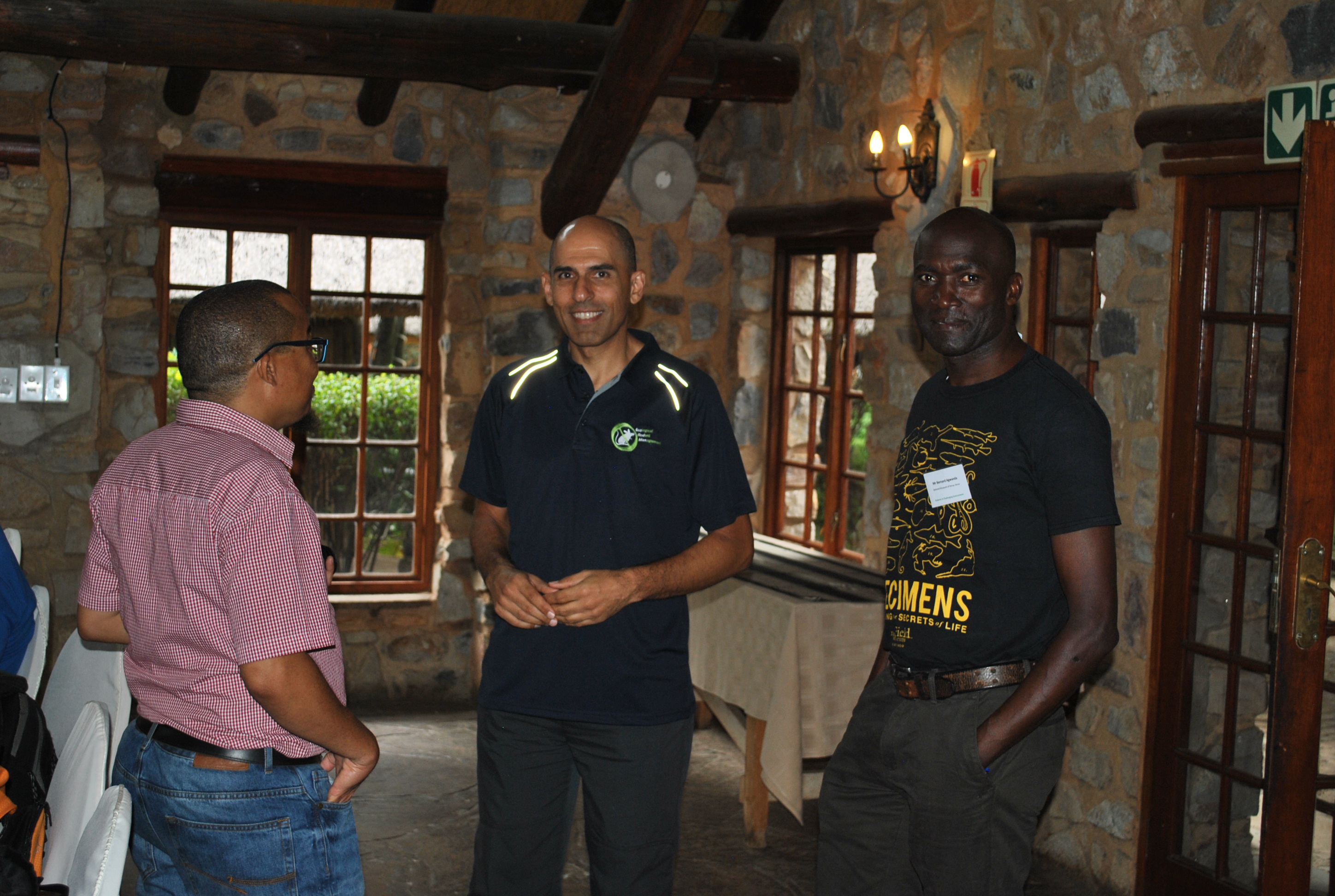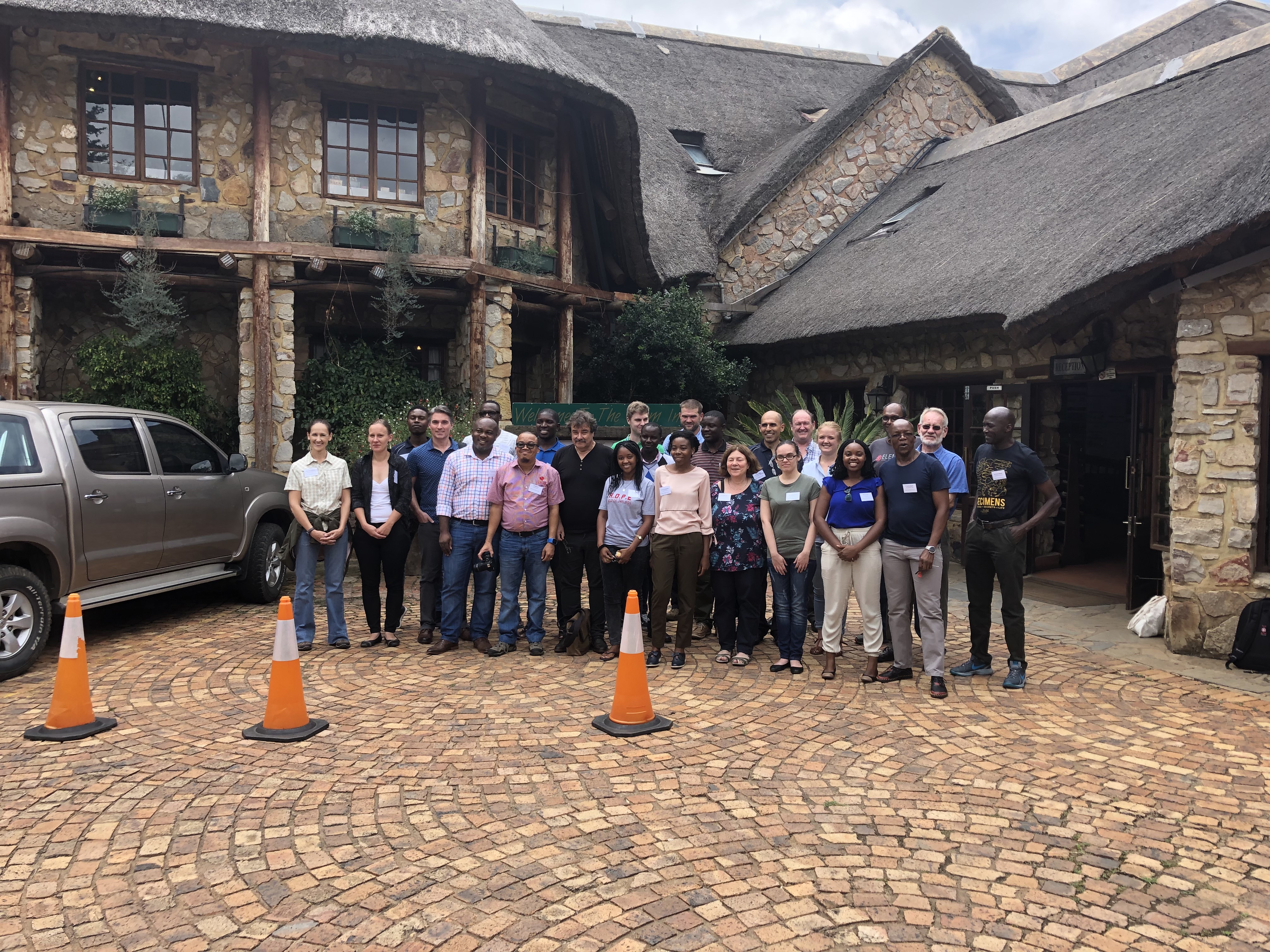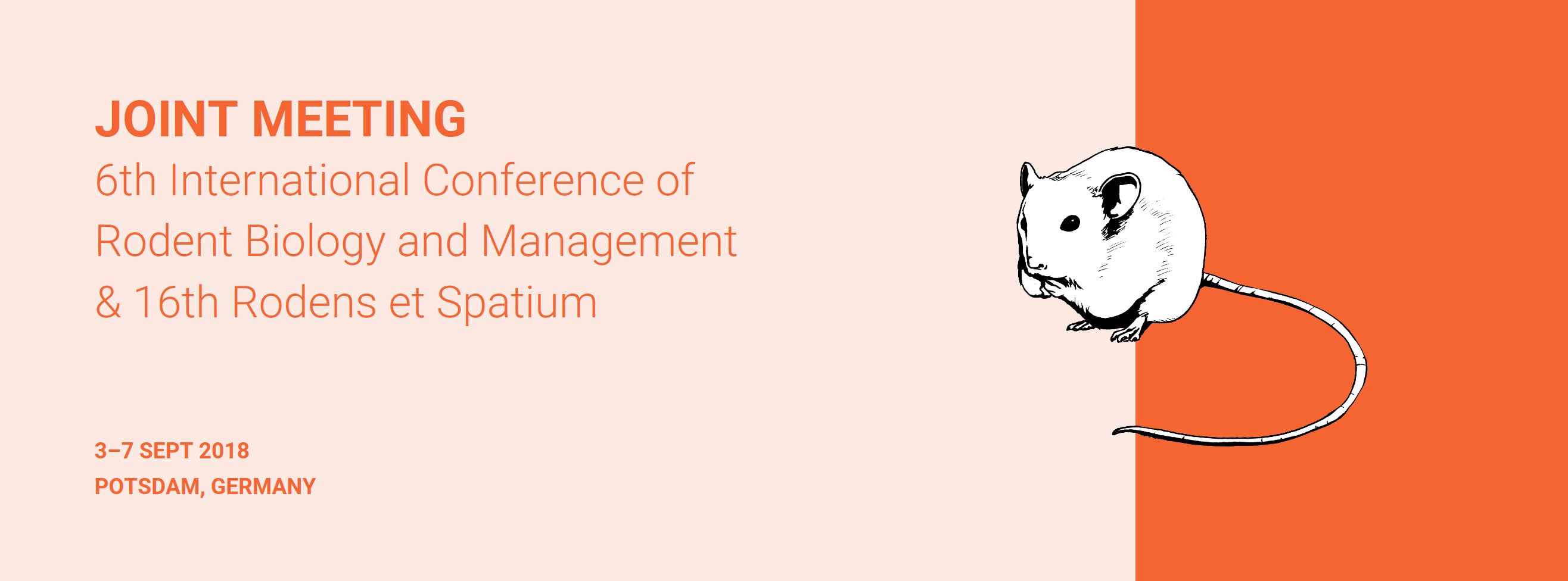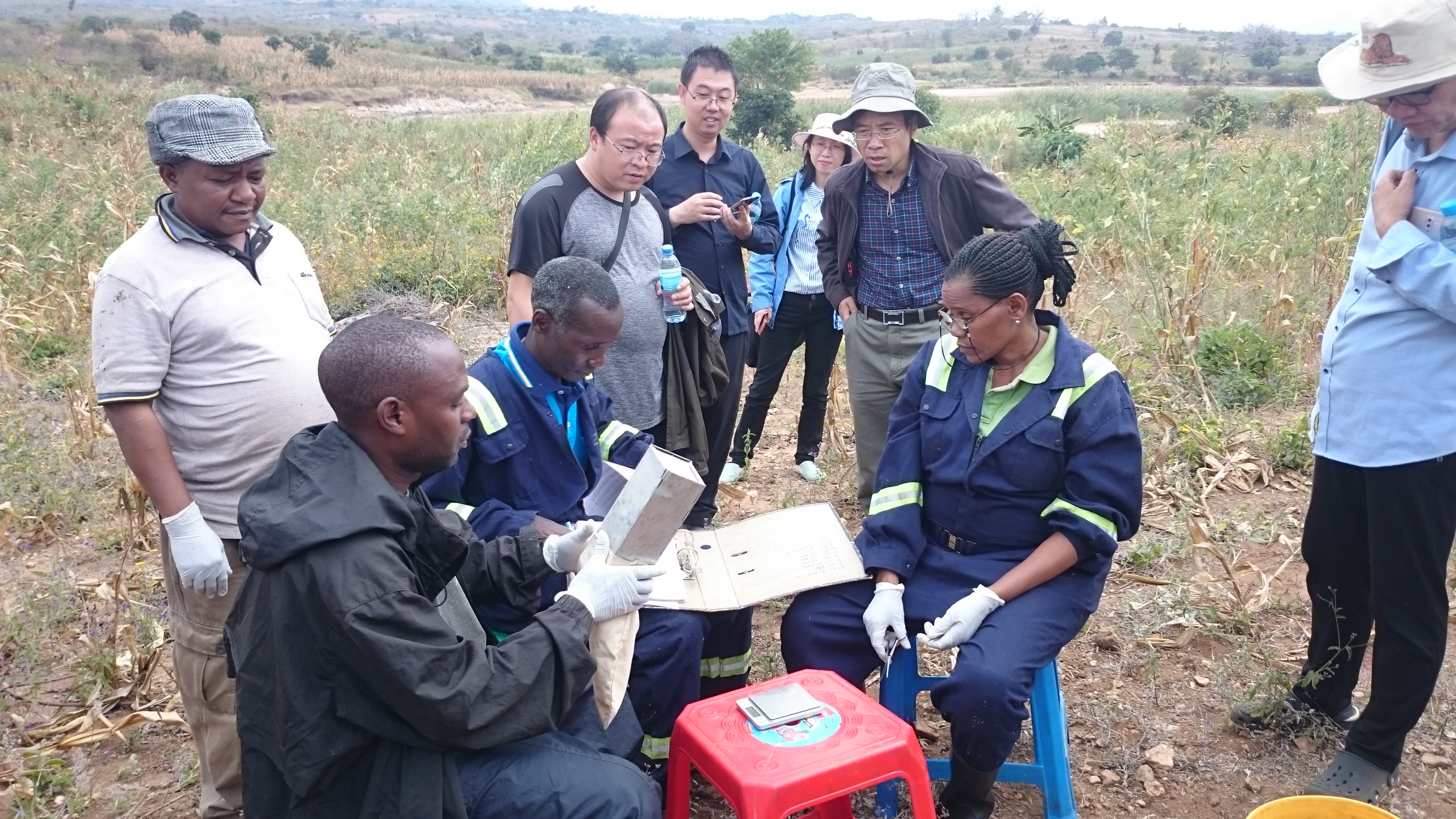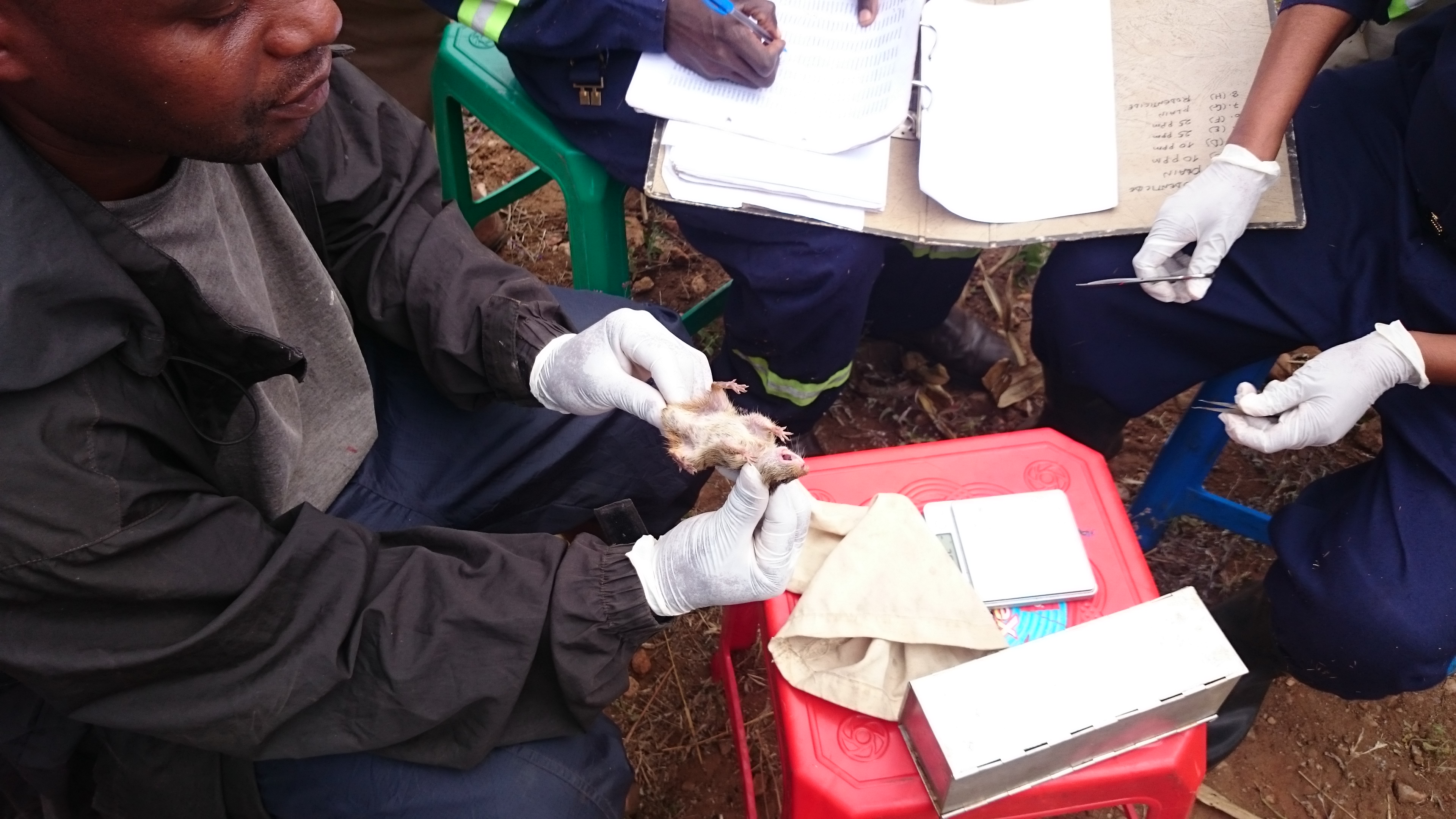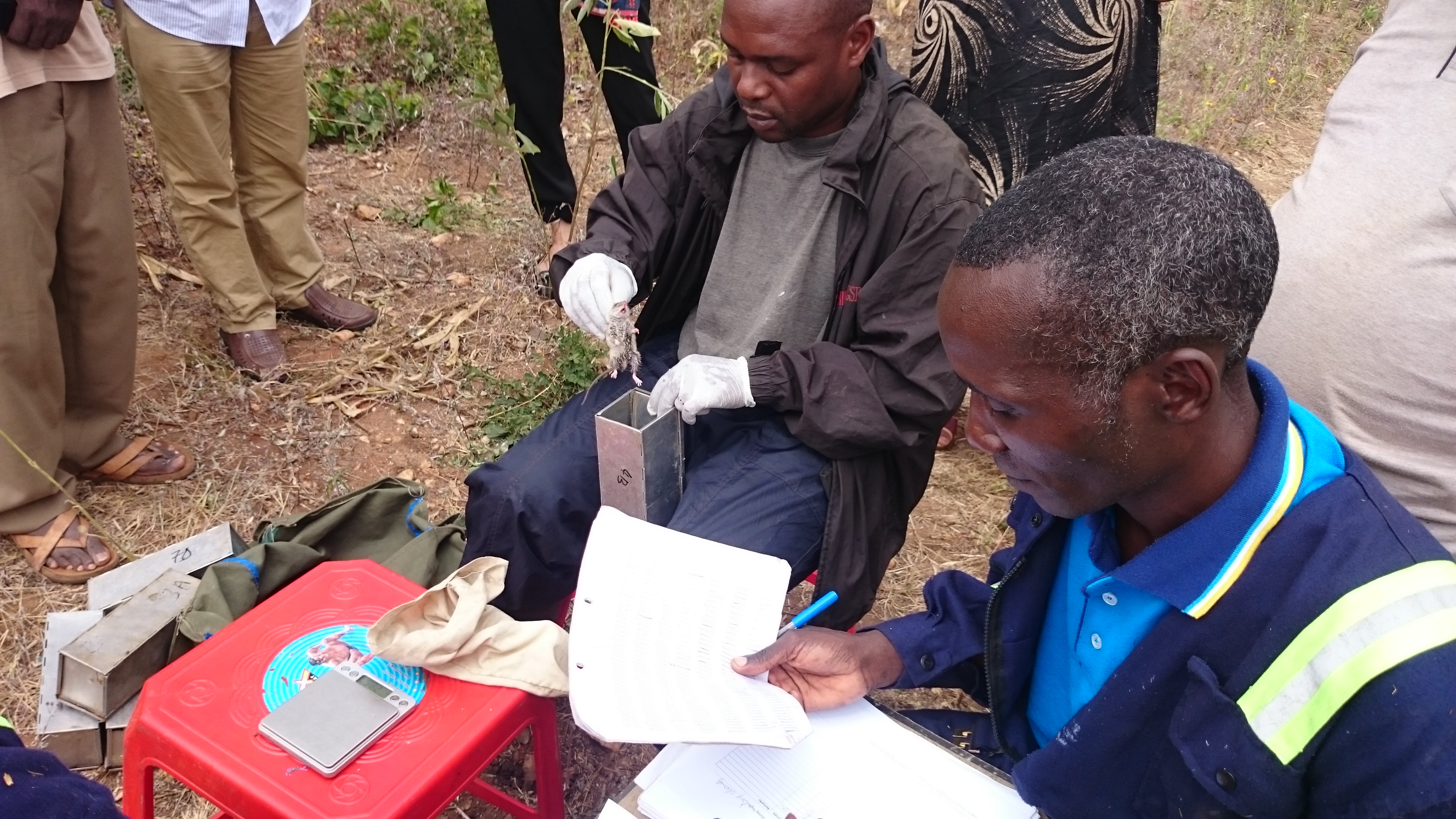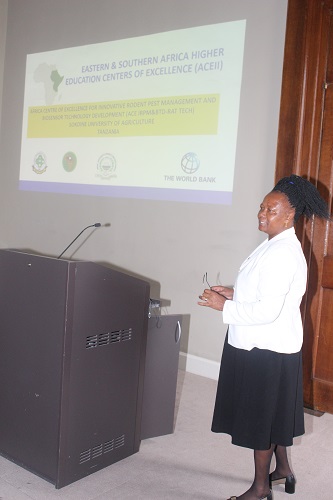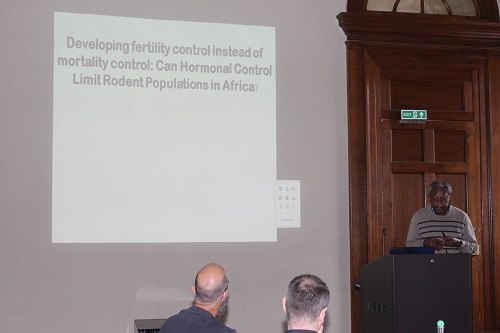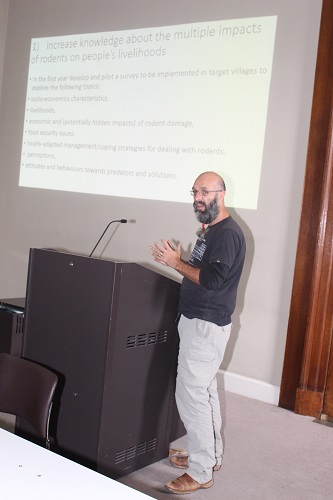May 2021
Congratulations to MSc student Mwajabu Selemani who has just graduated from Sokoine University of Agriculture, Tanzania. Mwajabu did her research on the impact of fertility limiting hormones on the black rat Rattus rattus. Her results show that the hormone treatment reduces pregancy rates by up to 100% when females are fed the bait. When males are fed the bait, litter sizes are reduced by 50% and pregancy rates are reduced by 70%. Her paper on this research has been recently published in the journal Integrative Zoology. Here is the link.

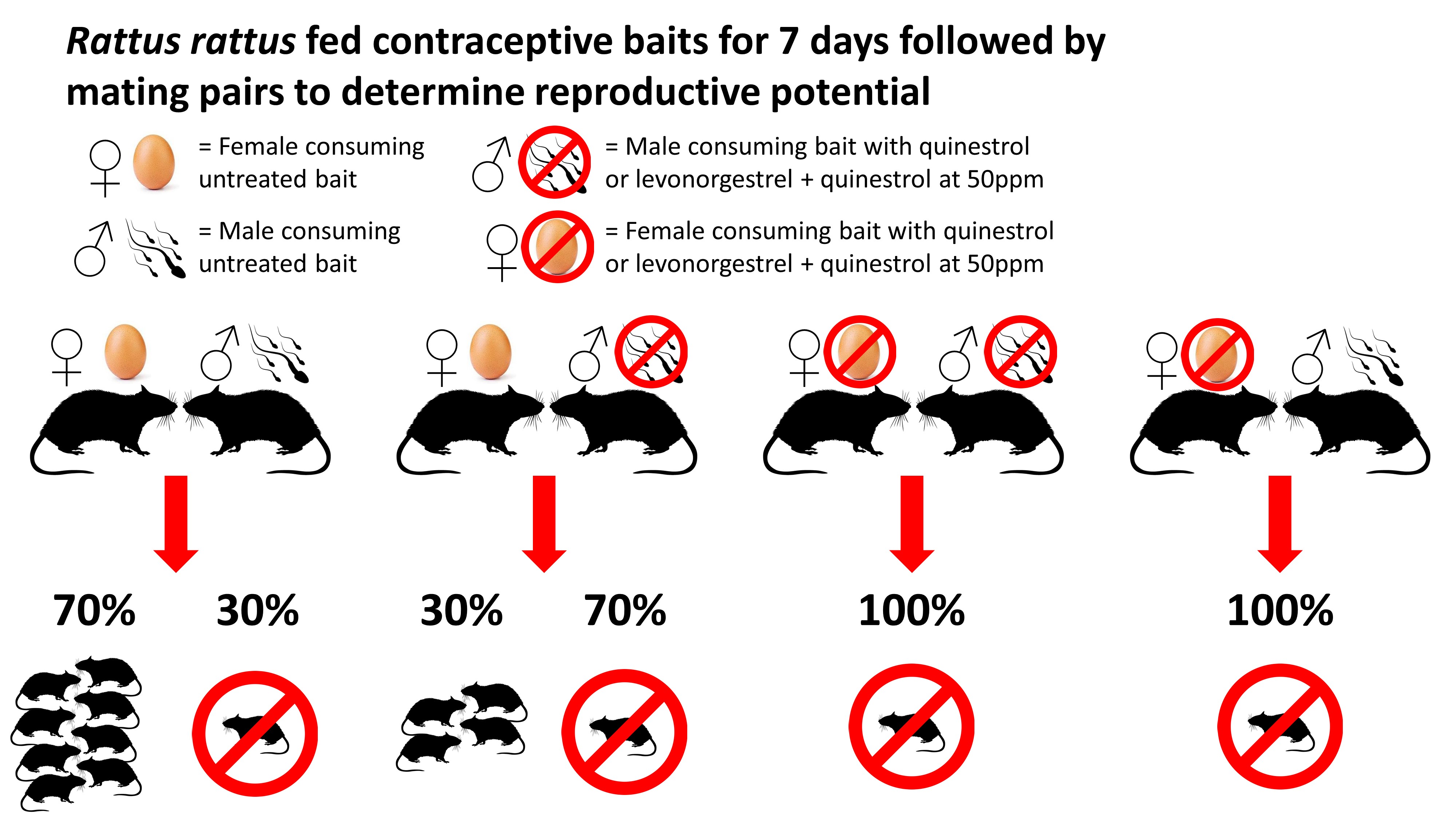
April 2021
Field trials evaluating the use of fertility control to manage rodent pest populations in maize fields is carried out in Zambia. University of Greenwich PhD student Christopher Imakando has carried out trials over two agricultural seasons comparing fertility control to traditional rodenticide control, showing both strategies are able to reduce rodent populations. Below photo is of a rodent eating fertility control bait inside a bamboo cutting, captured using a night vision camera trap. The work has been submitted to the journal Integrative Zoology.
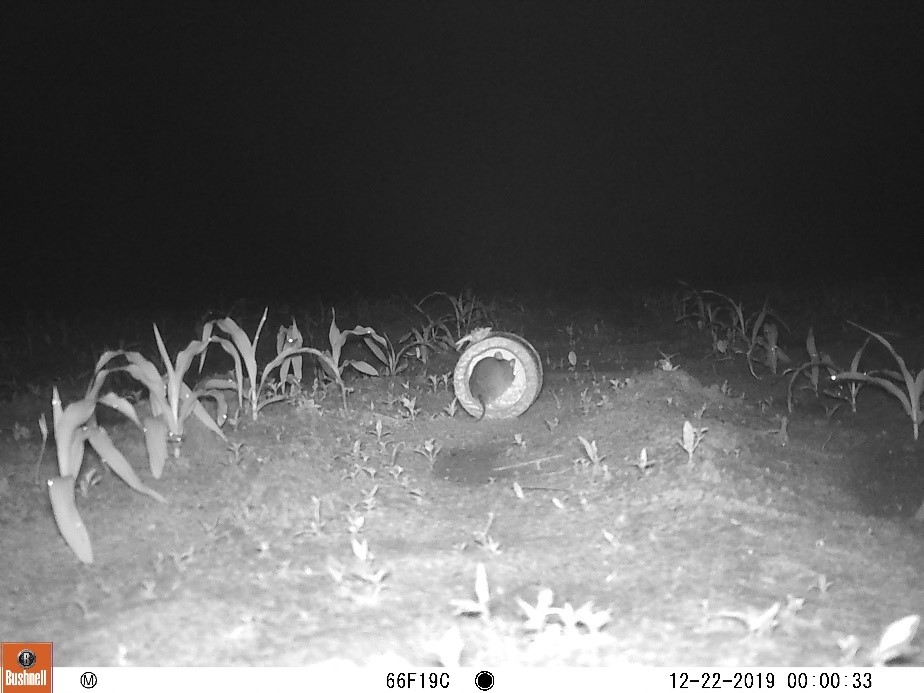
January 2021
Results of studies at the University of Venda trying to understand the role of domestic cats on rodent behaviour show that there are clear effects, which we have monitored in two different ways. We found a significant negative relationship between Mastomys natalensis and activity with cat activity at both Mastomys natalensis trapping sites and at Mastomys natalensis feeding sites. Below shows relationship between Mastomys natalensis activity during trapping (A) and during filming at feeding stations (B).
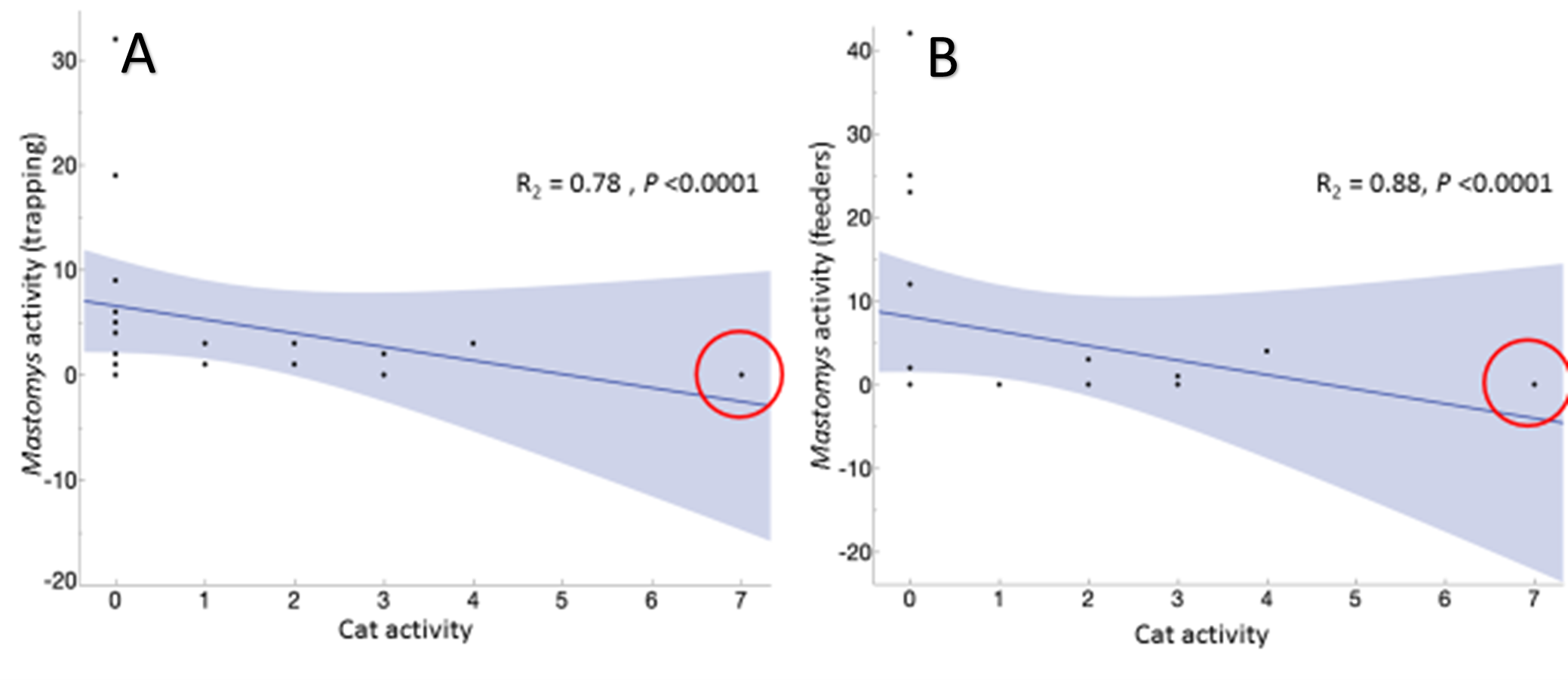
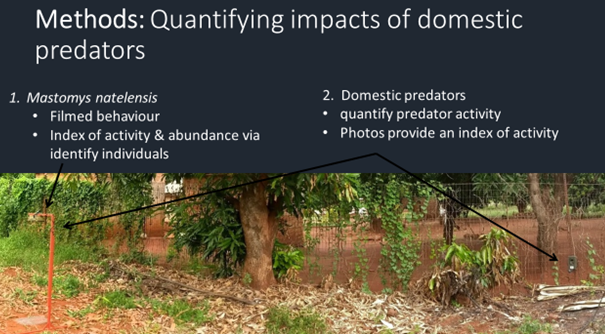
December 2020
A new training manual is produced to focus on ecologically based rodent management. Several different languages are available from the publications page. More language versions are being developed and will be posted here as made available.
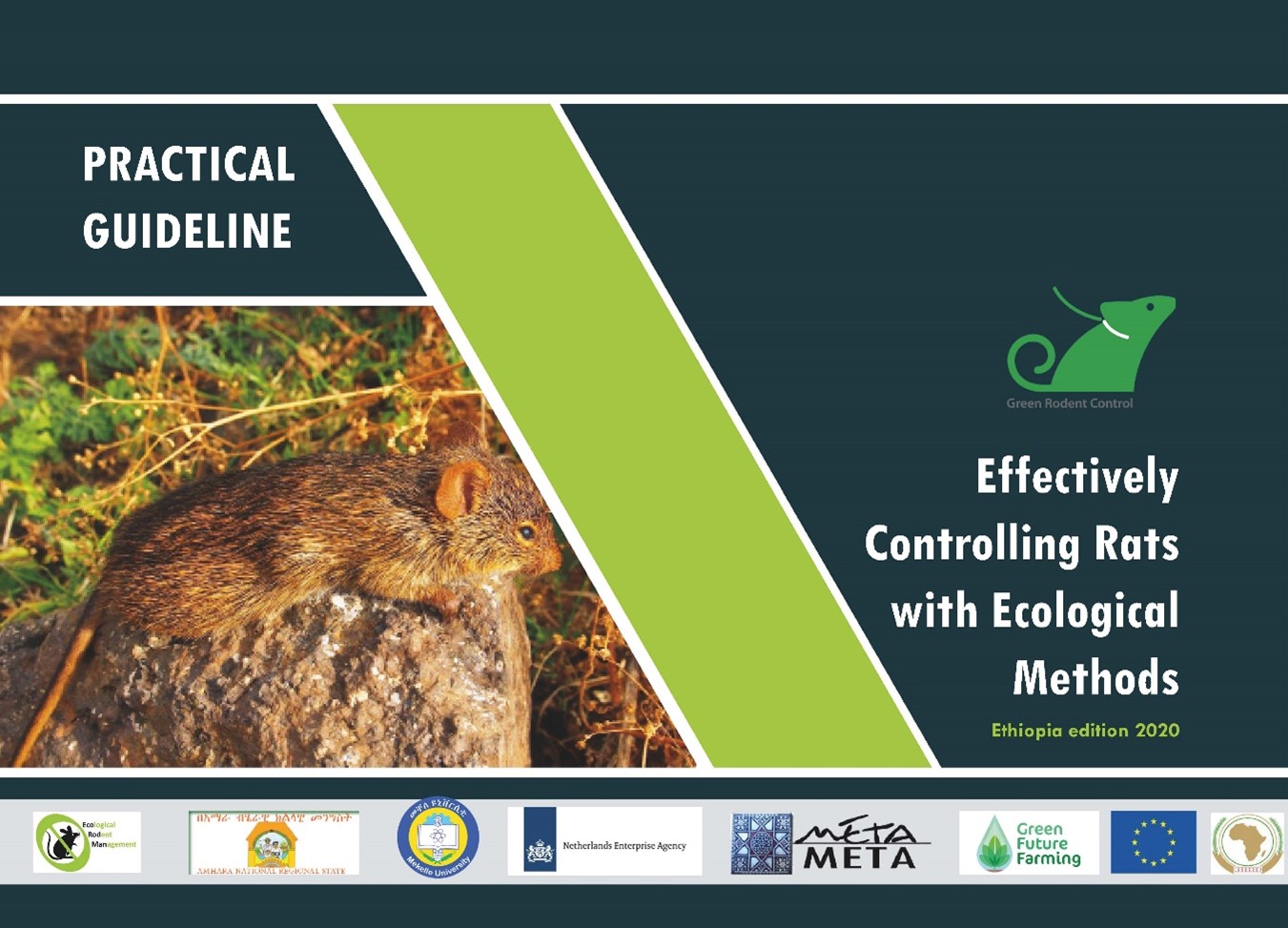
November 2020
Educational research with communities carried out by University of Venda shows that most community members have generally negative views of mesocarnivore species that are involved in natural pest regulation. The work has been accepted for publication in the journal Ecosphere and shows that these views can be changed through educational programmes that aim to raise awareness about predators. Predation is often mentioned as a sustainable method for rodent control; however, cultural attitudes are strongly entrenched and will be difficult to change without concerted efforts over long time frames. Without such changes across African communities, more natural pest regulation ecosystem services will not be possible. Below shows community perceived impact of predators.
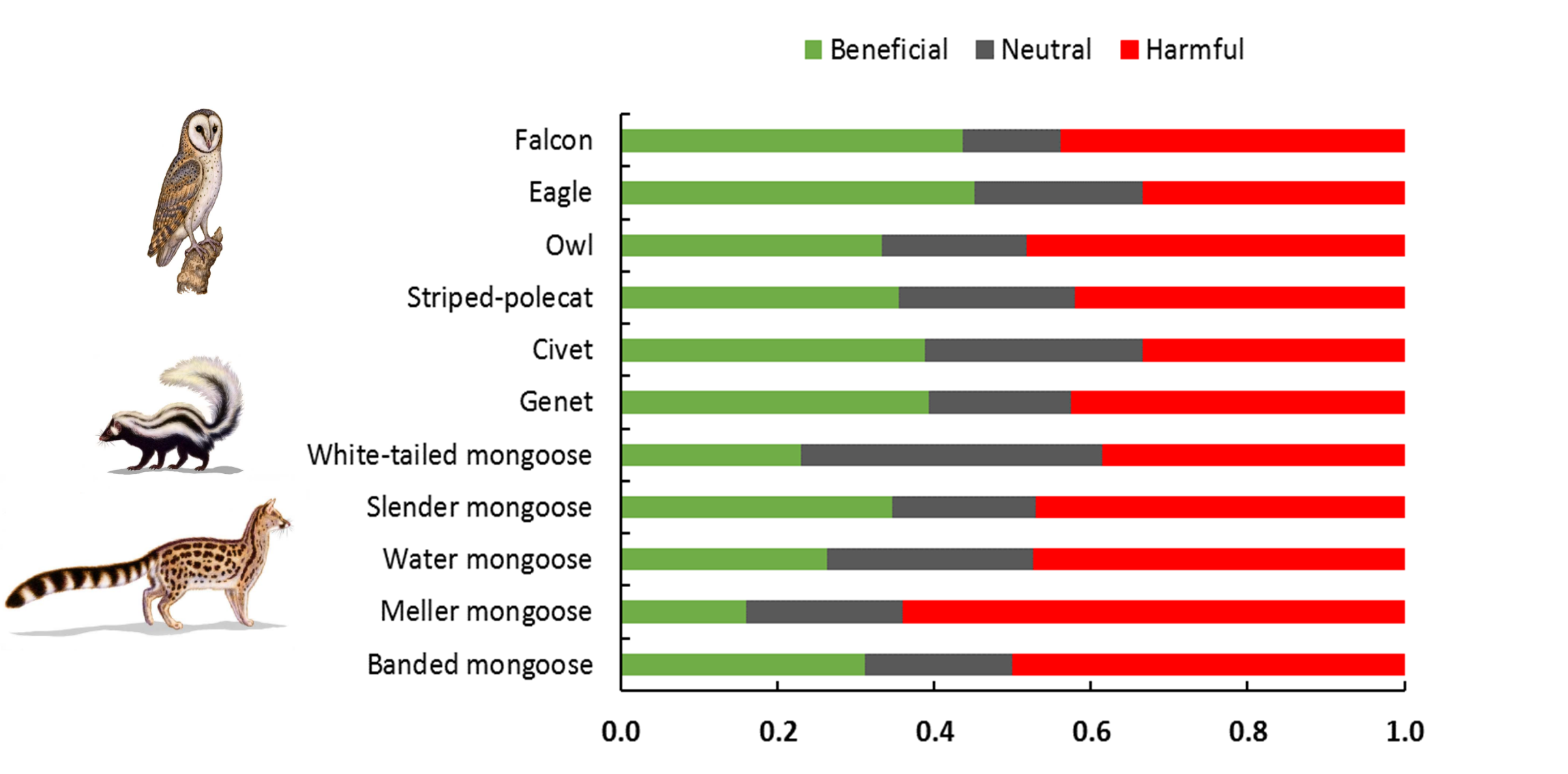
August 2020
Surveys have been carried out in peri-urban areas of Ethiopia to understand the impacts of rodents on people's livelihoods. The survey was conducted in two peri-urban areas around Mekelle, Hdassie (northwest of Mekelle) and Dungur (south of Mekelle). From each of the peri-urban areas, 10 individuals aged 32-62 years, were randomly selected. While four of the participants had no formal education, the reaming 16 had either primary or secondary school or technical and vocational (12+3) education. The average family size of the communities in the two study areas was 4-6 persons per household.
General information of rats as pests. More details of the survey will be provided later.
|
Questions |
Reponses |
|
Are rats a problem in your area? |
Rats are a very serious problem in our community |
|
Where do you mostly encounter rats? Fields or homesteads? |
At homesteads |
|
Where are they more damaging crops? |
At homesteads |
|
Are you able to differentiate the rats that occur in fields and those in homesteads? |
Yes |
|
If ‘Yes’, are they the same or they are different? Explain |
Different; inside homes, they are black with long tail. These are not easy to trap and kill using poison. Rats outside homesteads (fields) are grey and brown with shorter tail. |
|
When do the rats mostly move around? |
The rats move around mostly at night, but we also see some during the day |
In the backdrop of the pictures below, the housing conditions (corrugated iron sheet) and the stone walls are evident.
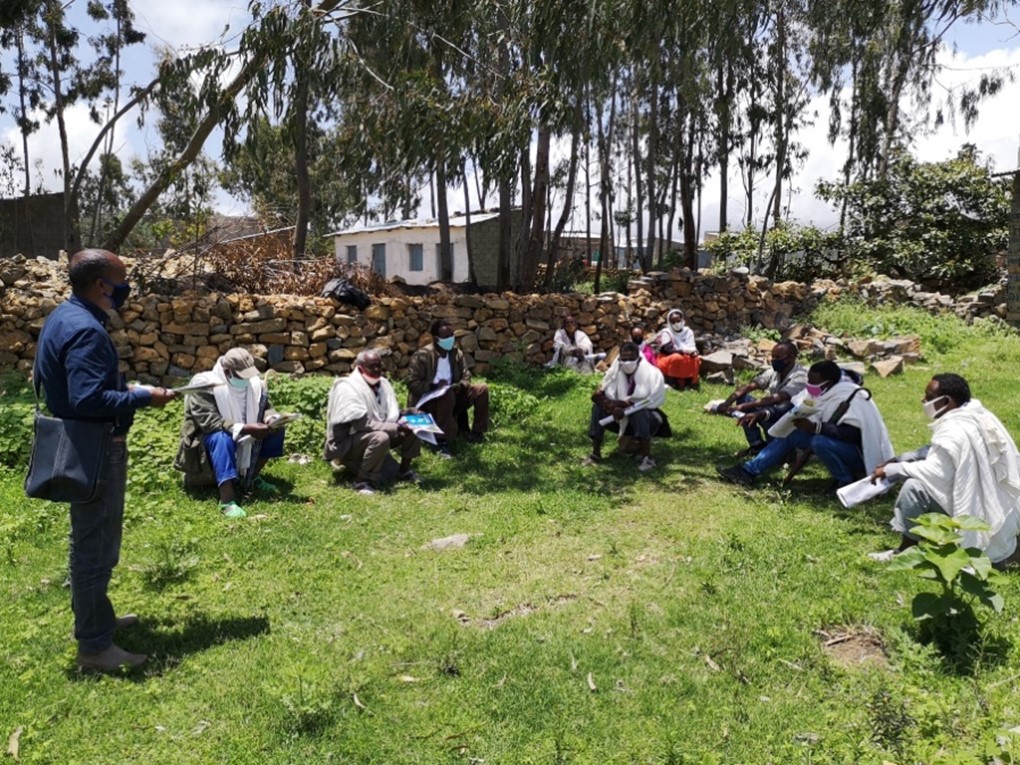
May 2020
A new research paper is published by several members of the EcoRodMan team. "A comparative assessment on rodent impacts and cultural perceptions of ecologically based rodent management in three Afro‐Malagasy farming regions" is published in the journal Integrative Zoology which is the official journal of the International Society of Zoological Sciences and focuses on zoology as an integrative discipline encompassing all aspects of animal life. Details about the paper can be found by following this link https://doi.org/10.1111/1749-4877.12447
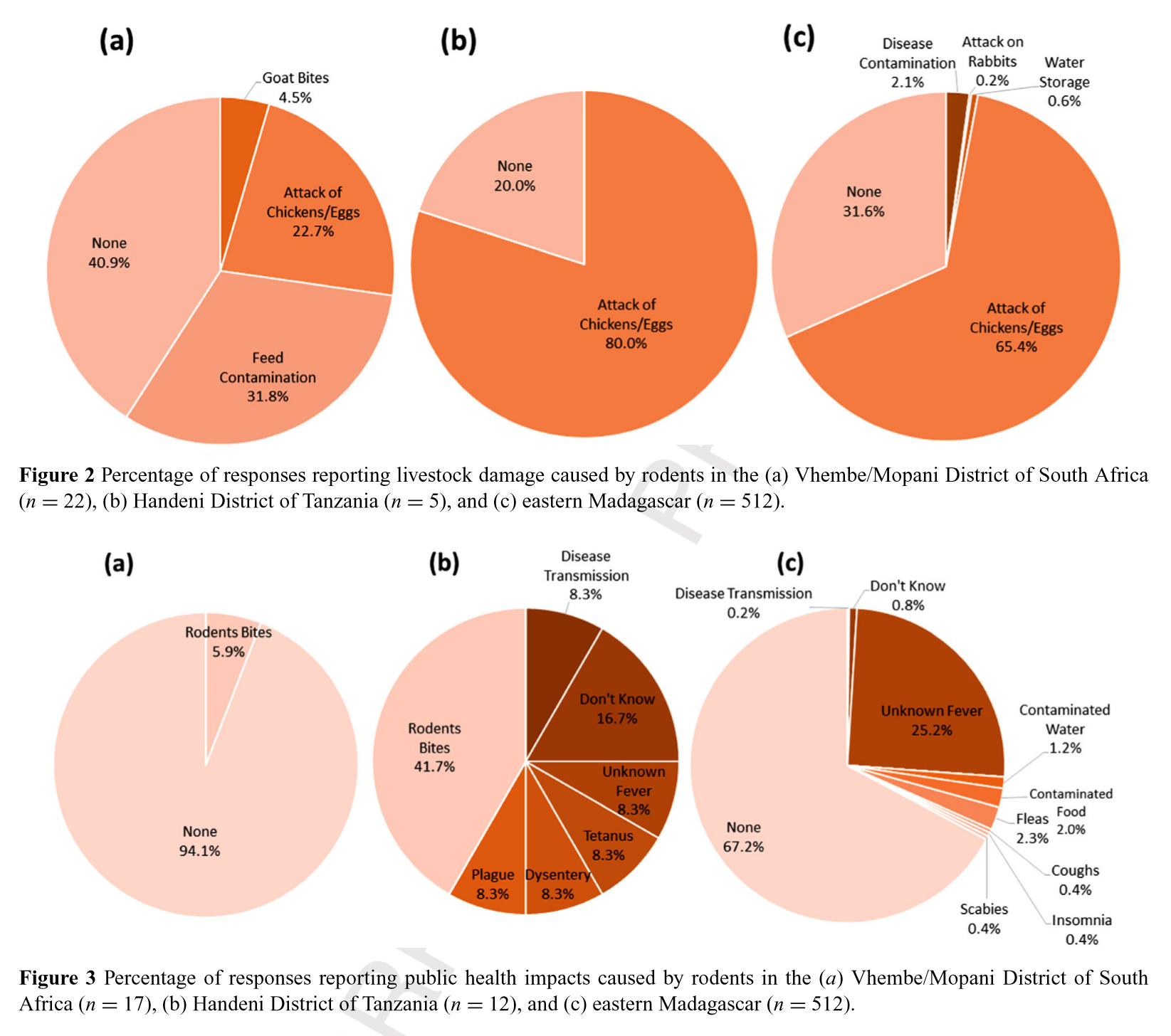
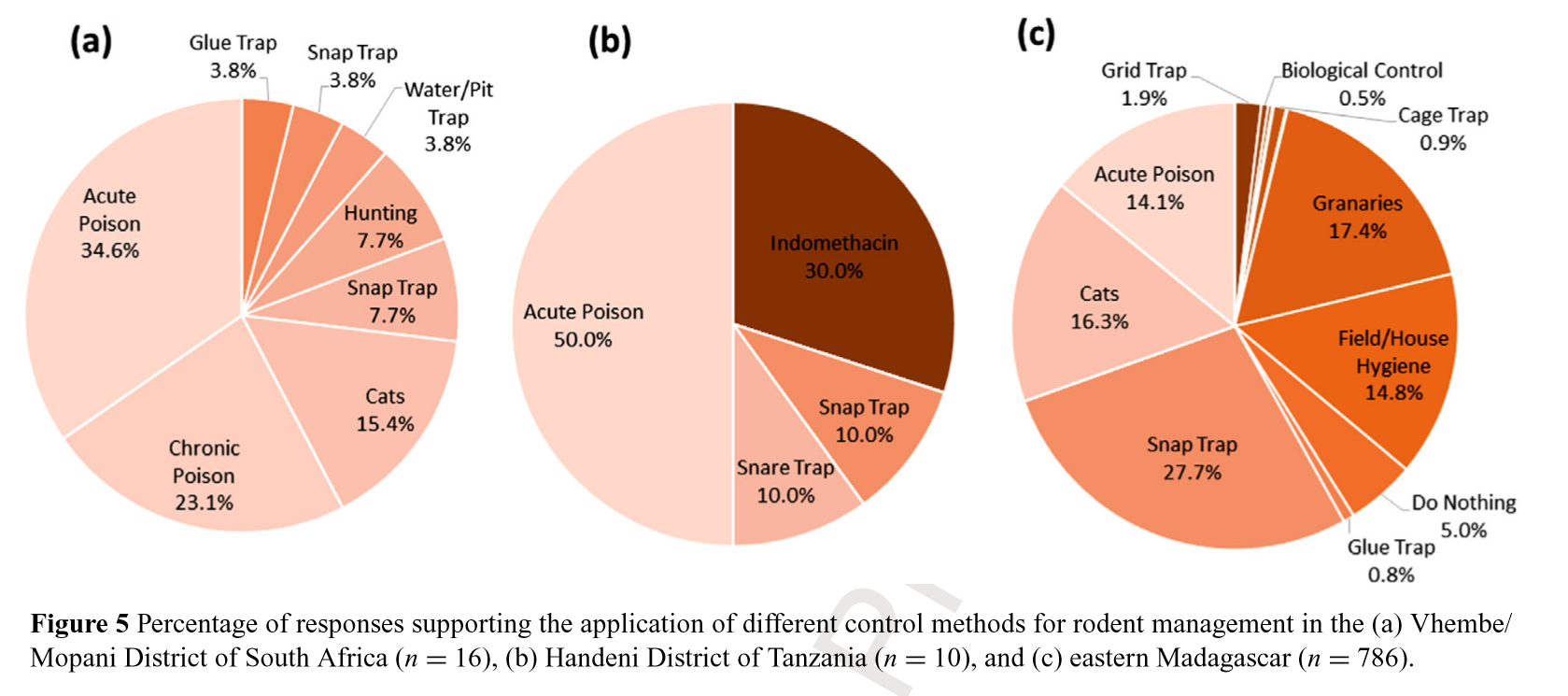
April 2020
EcoRodMan team members from Sokoine University of Agriculture, Tanzania and the Natural Resources Institute, University of Greenwich are part of a team that has won £2 million to investigate rat control and management and to reduce the transmission risk of several rodent-borne diseases, particularly plague, leptospirosis and typhus. The funding has been awarded by the UK Research and Innovation Global Challenges Research Fund and is for interdisciplinary research that addresses wider contextual factors contributing to the burden of infectious diseases. Although rodents are not involved in the current Covid-19 pandemic, they have been responsible for many global pandemics in the past caused by diseases such as plague and hantavirus. Even today, rodents continue to be a source of many diseases affecting people and livestock and can cause widespread disruption to health care systems. More about the award can be found through this link https://www.nri.org/latest/news-in-brief/2020/nri-s-rat-research-wins-major-research-grant-to-fight-disease
December 2019
Farmers in Limpopo Province, South Africa involved in EcoRodMan research trials proudly show off their new logo-laden t-shirts.
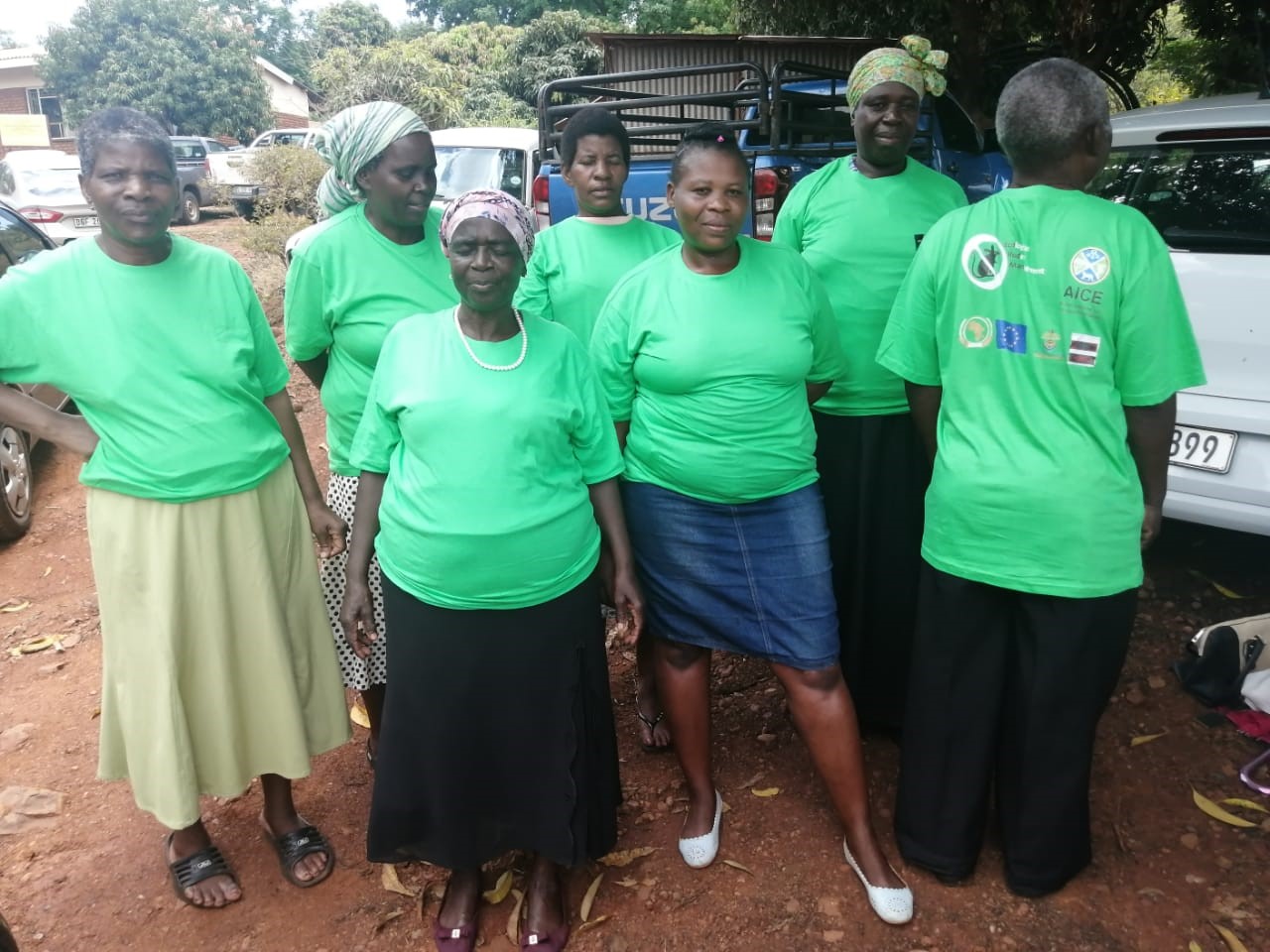
November 2019
Community trap barrier systems (CTBS) erected in Uganda are showing they are effective. CTBS is a rodent pull technique commonly used in Asian irrigated rice production to control rodent populations thus reducing potential damage. The technique involves planting a small area of about 10 by 10m square plot with rice crop two weeks earlier than the rest of the areas. The earlier planted rice is fenced off with a polythene sheet and small holes created at each of the sides where, wire cage traps are installed inside the plot for trapping rodents that try to enter through the open holes. Rodents are attracted to this fenced off plot from a long distance estimated to be about 200 m away. Two sites in Bugiri and Butaleja districts were identified and TBS plots established.
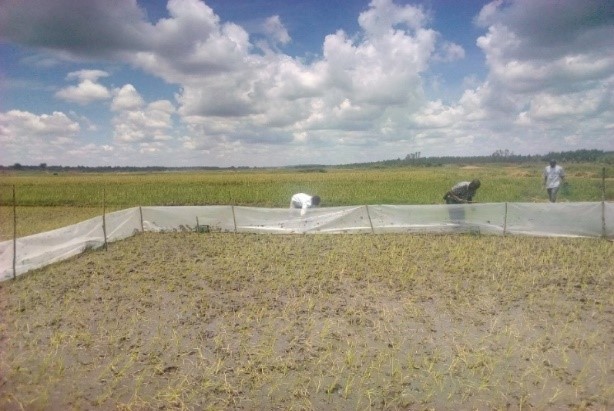
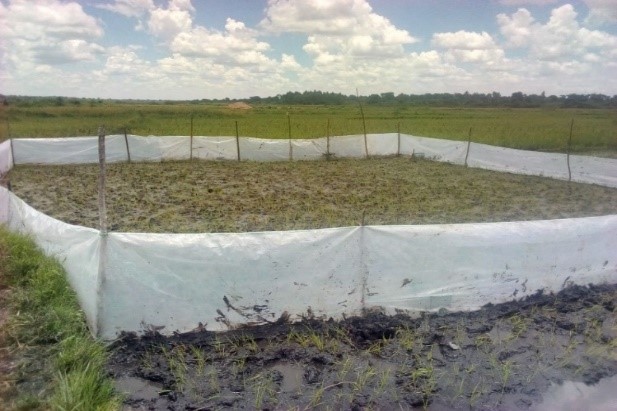
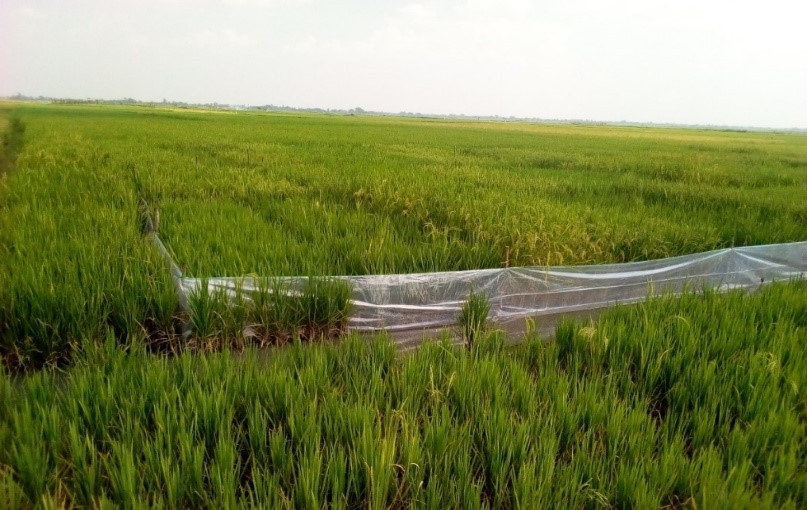
October 2019
The team at Venda University, South Africa are developing a series of training materials and educational sessions for primary and secondary schools and rural farming communities to raise awareness about the benefits of wild predators to control pest rodents. Communication, education, and public awareness campaigns play an increasingly important role in biodiversity to help reduce conflicts with carnivores and enhance environmental knowledge and behavioural intentions. School engagement activities included talks on how to identify different carnivore species, ecosystem services and disservices, the importance of conserving biodiversity and challenges in carnivore conservation. We will also implemented activities and games with students to help them understand complex concepts, integrated with fun learning activities where students learned about African carnivores and their role in the ecosystem (food webs, predation, and trophic cascades). At small holder farming communities we also ran a series of educational workshops. The training workshops drew on components of the education programme related to identifying carnivore species, ecosystem services and disservices and the challenges of carnivore conservation. Through these workshop we engaged with farmers using a series of presentations and participatory exercises allowing opportunities for knowledge exchange and discussion.
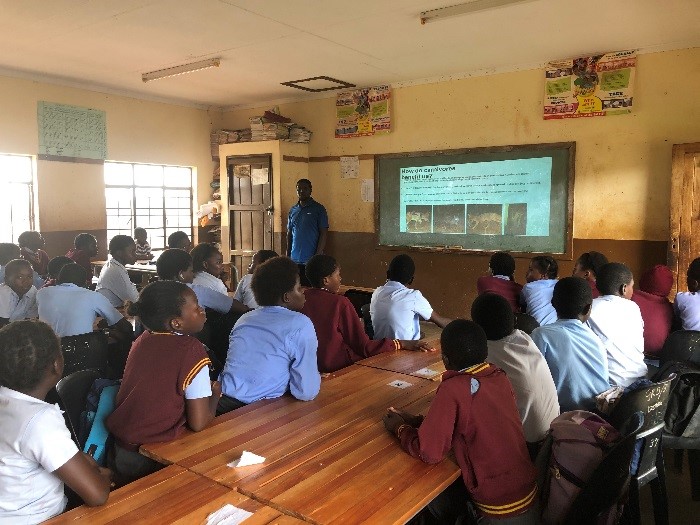
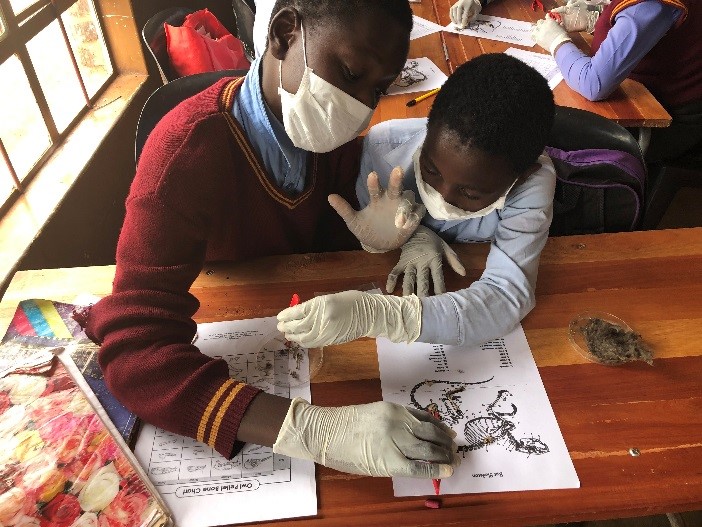
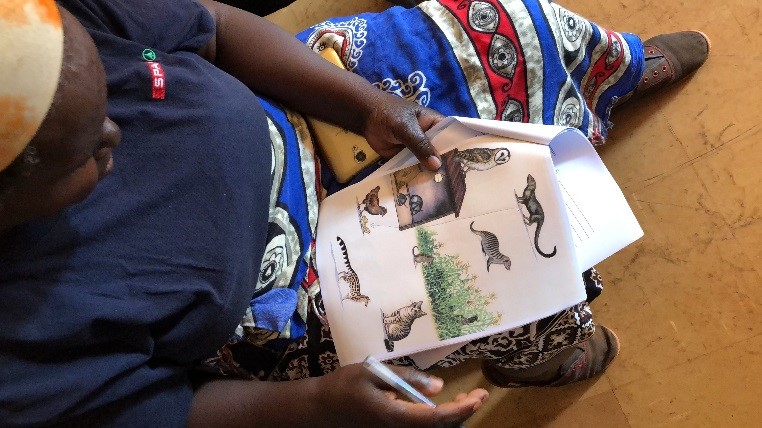
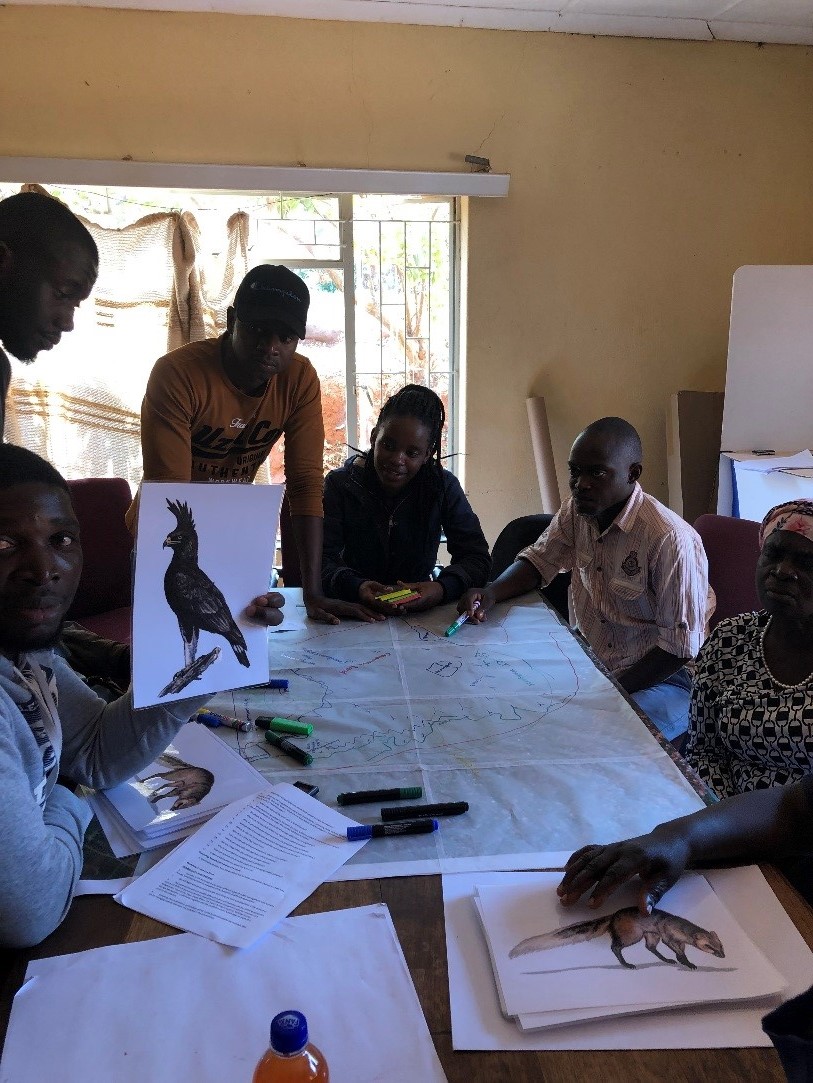
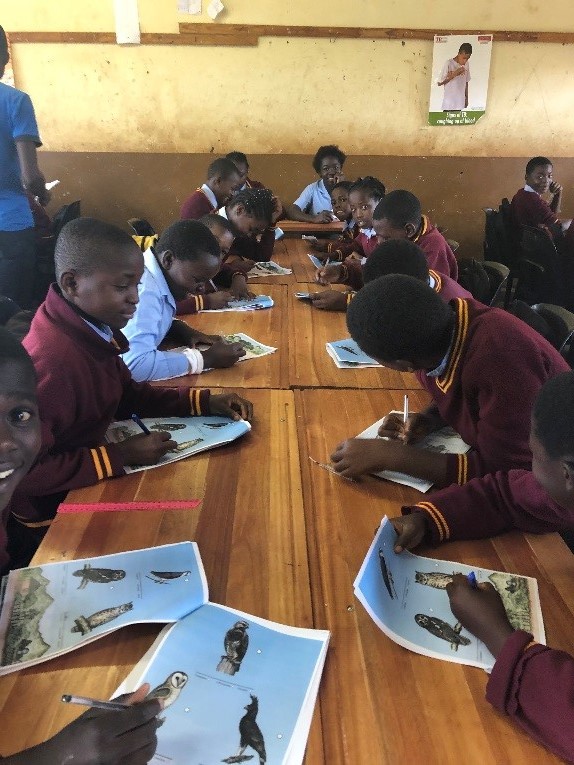
The team at Mekelle University, Ethiopia continue their work on assessing botanicals that could be used to control rodents as new alternatives to persistant commerical poisons that are known to accumulate in the environment. The plant materials are prepared and then incorporated in to standard rodent diet and fed to rodents. The effects of the plants on the pest rodent species are then evaluated.
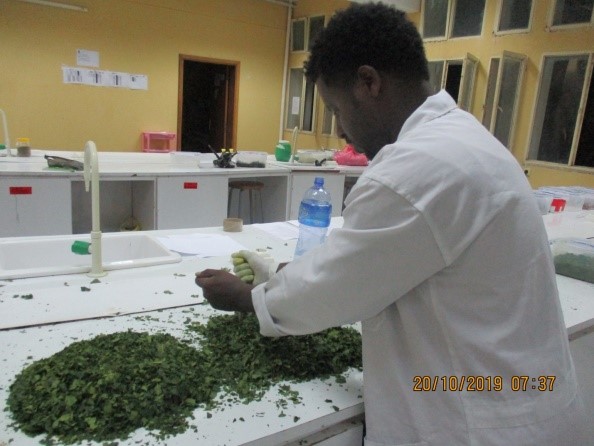
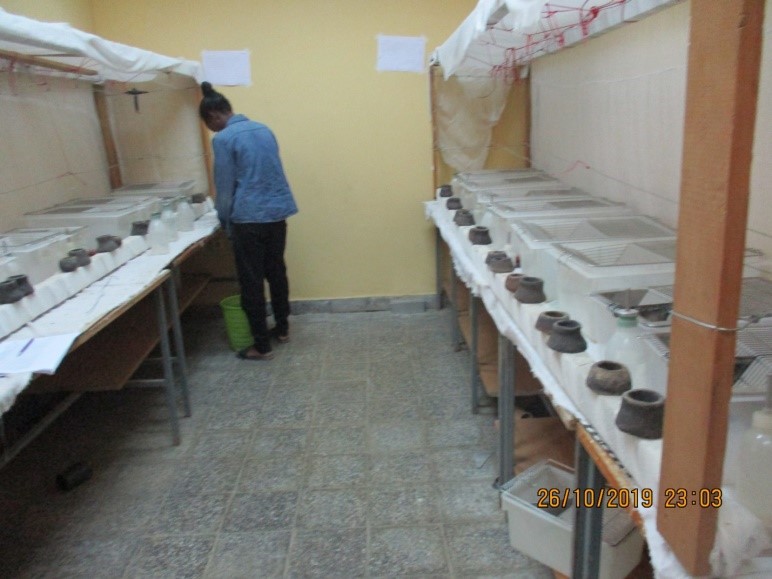
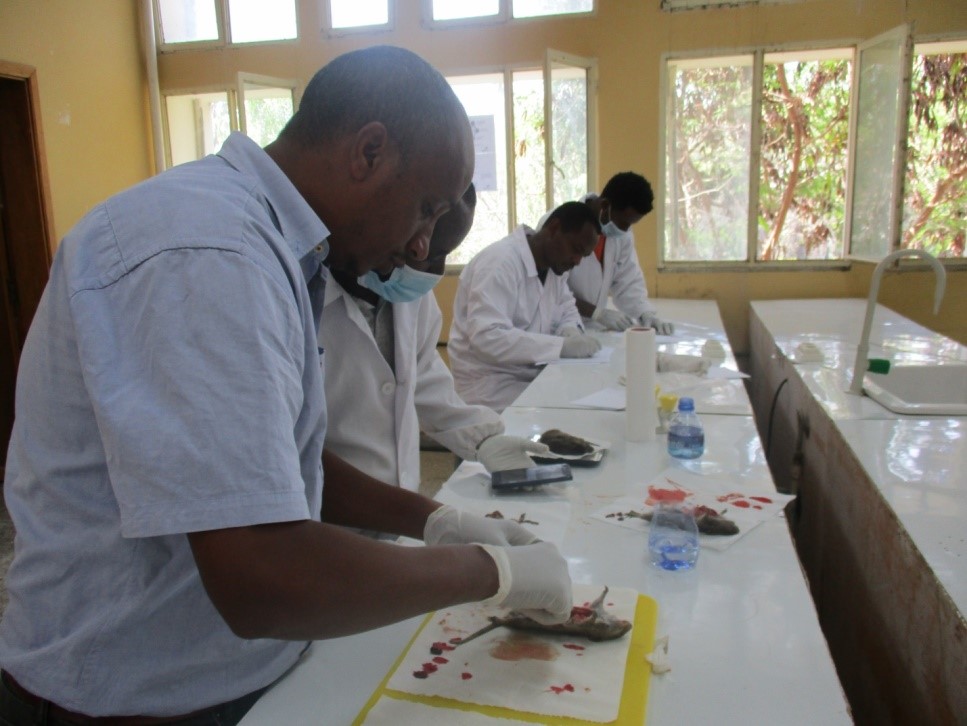
September 2019
Mekelle University hosts the 13th African Small Mammal Symposium. More than 150 delegates from around the world came to Mekelle, Ethiopia to present more than 100 oral and poster presentations about the conservation and management of small mammals in Africa. Representatives from all the partners involved in EcoRodMan were present with 14 presentations and posters made by students and staff involved in the EcoRodMan project. The focus of this conference was on small mammals and included research on ecology, taxonomy and pest management. Of special relevance to EcoRodMan, was the number of presentations highlighting the role of rodent pests in agricultural settings. Representatives from the African Union took advantage of the conference to meet with the EcoRoMan team and to make site visits to the lab and field to see ongoing work in Ethiopia that is part of the EcoRodMan project.
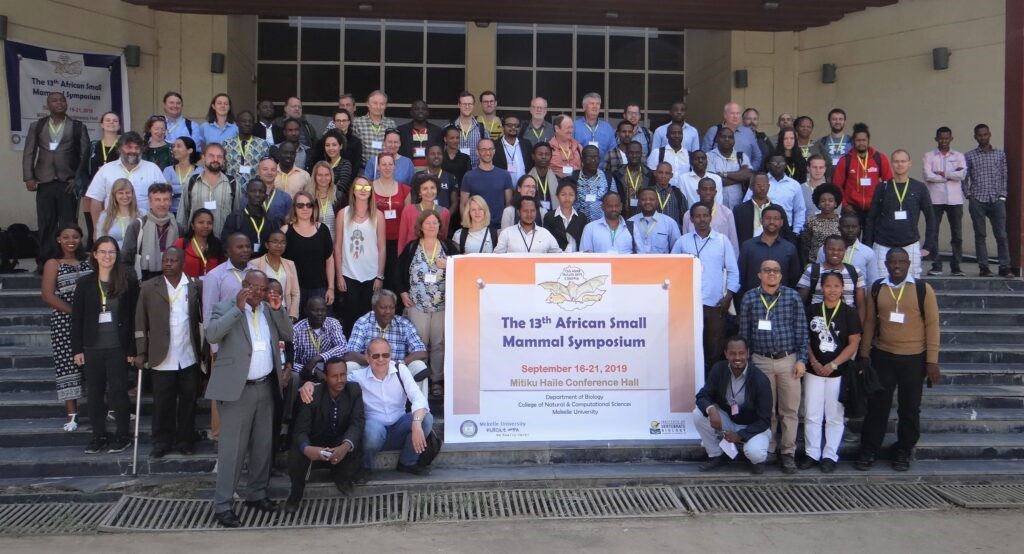
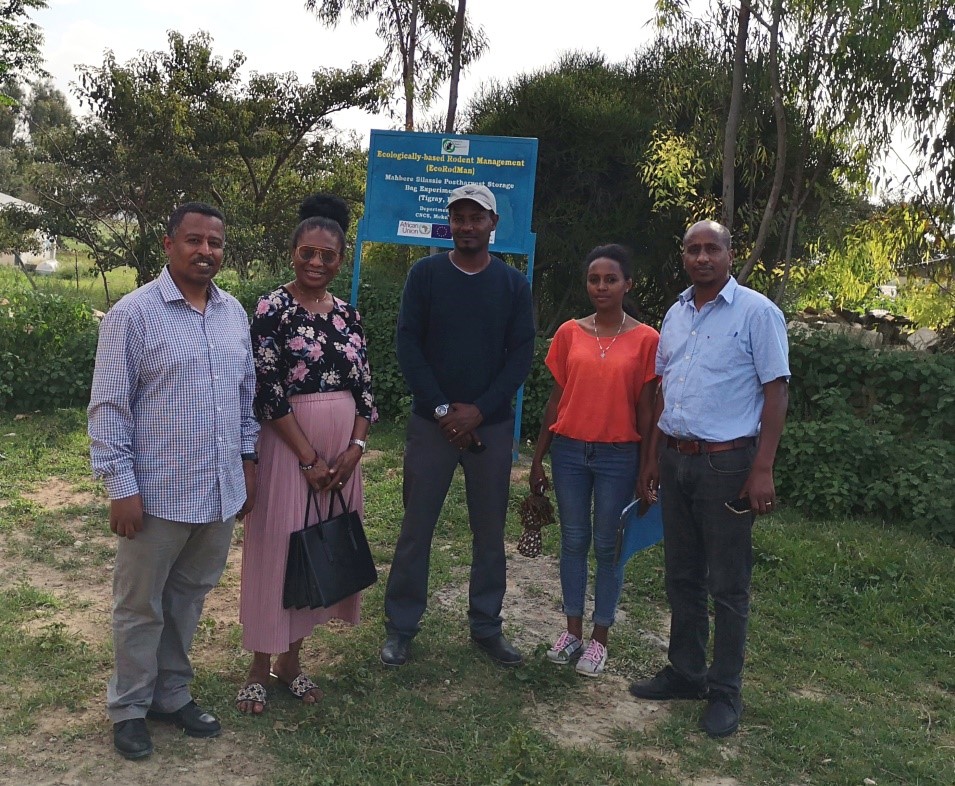
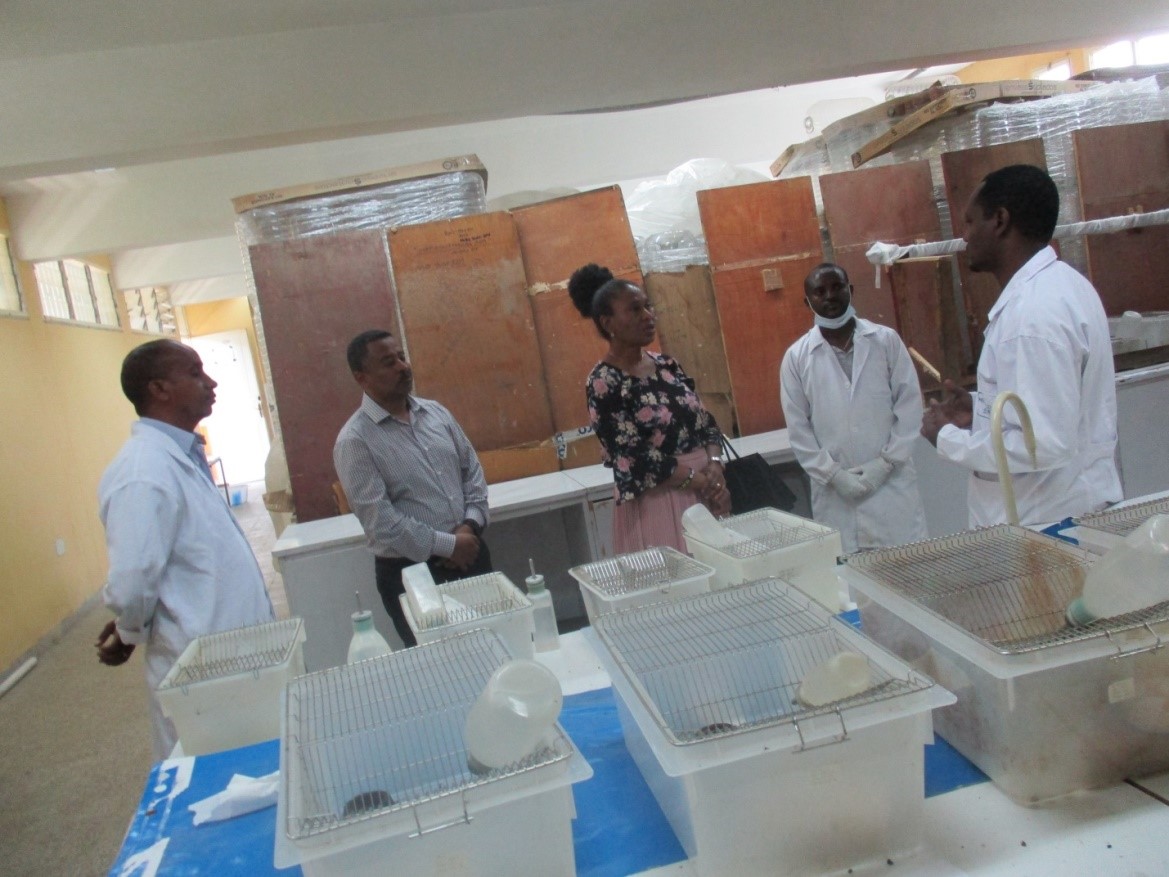
July 2019
Camera traps are used to monitor the presence of predators and prey. Below shows how the camera traps are being deployed in Eswatini as well as an image of a rusty-spotted genet (Genetta maculata), one of just two wild predators detected in an agricultural landscape in Eswatini. We still don't fully understand the role of such predators to control pest rodents, but preliminary evidence suggests will small carnivores spend much of their time foraging in farmer's crop fields where rodent pests are present.
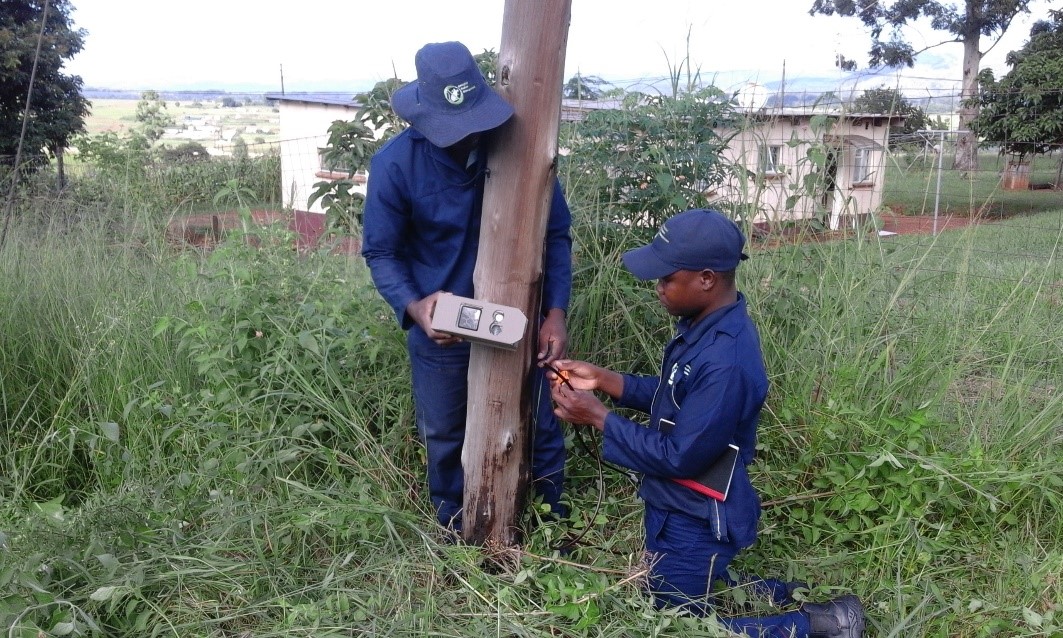
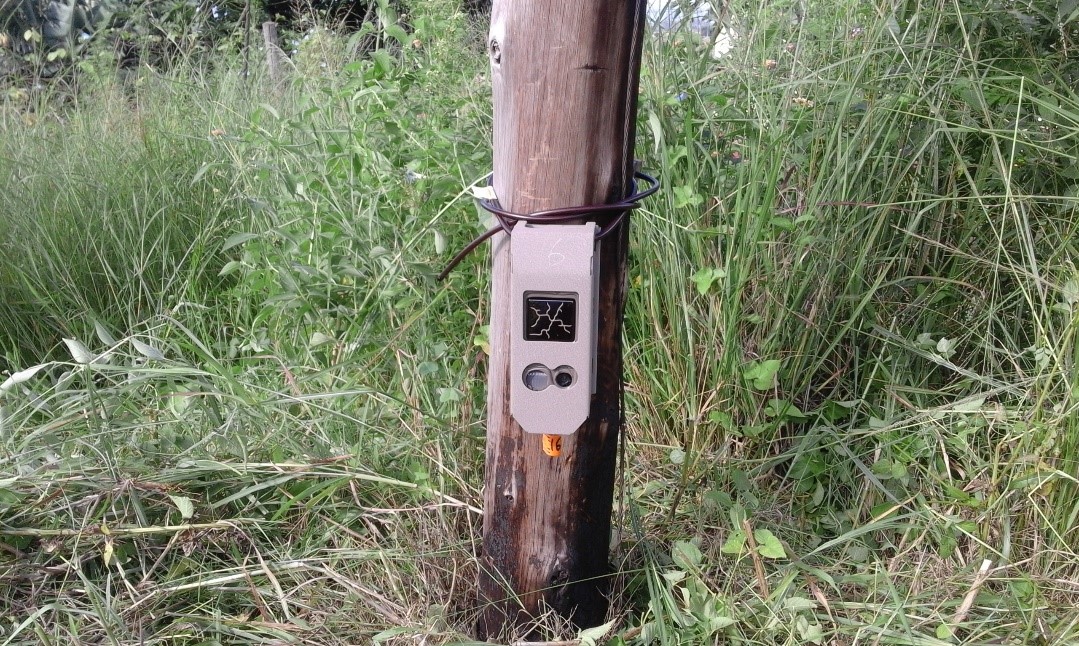
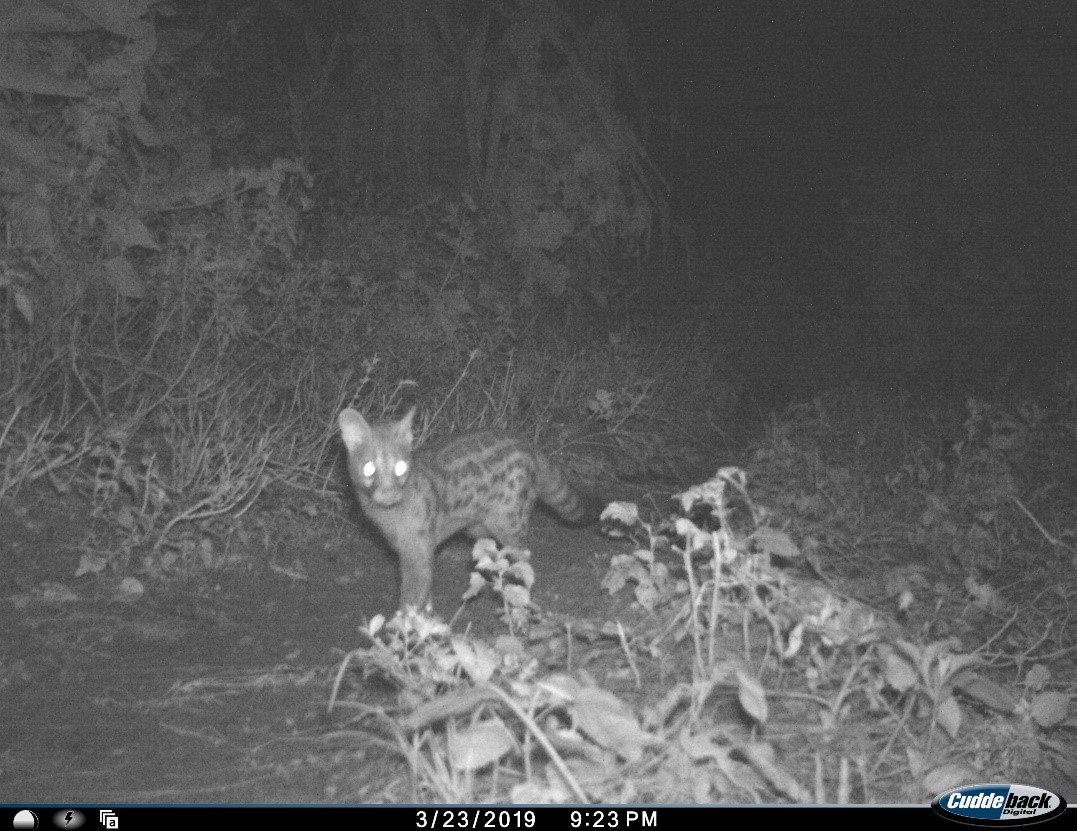
June 2019
As part of barn owl surveys in Eswatini, small mammal community surveys also take place. The below photos show the EcoRodMan team of Mnqobi Mamba, Dumisane Mahlindza, Mlandvo Mamba, and Bongani Magongo in Eswatini processing small mammals captured in Sherman live traps on a sampling grid.
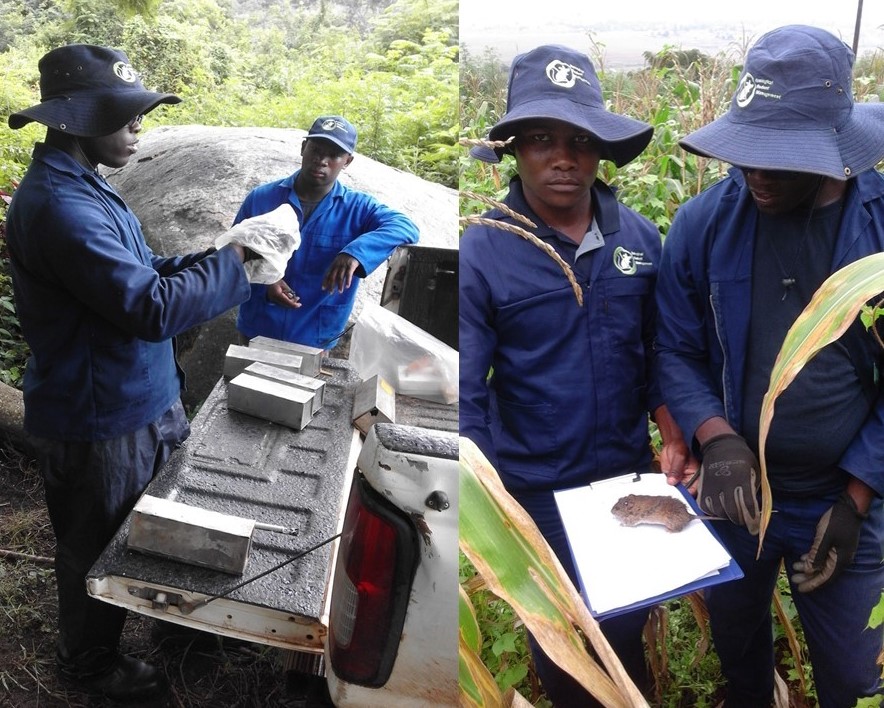
May 2019
Field work is now under way to try to understand the ranging behaviour of domestic predators of rodents such as dogs and cats. Domestic animals are being collared with devices that track their movements which will allow us to understand how much time of dogs and cats is spent around homesteads, agricultural areas and other habitats such as grazing land or bush land. The device stores information and must be recovered to download the information, which could be a challenge if animals go missing or become uncooperative.
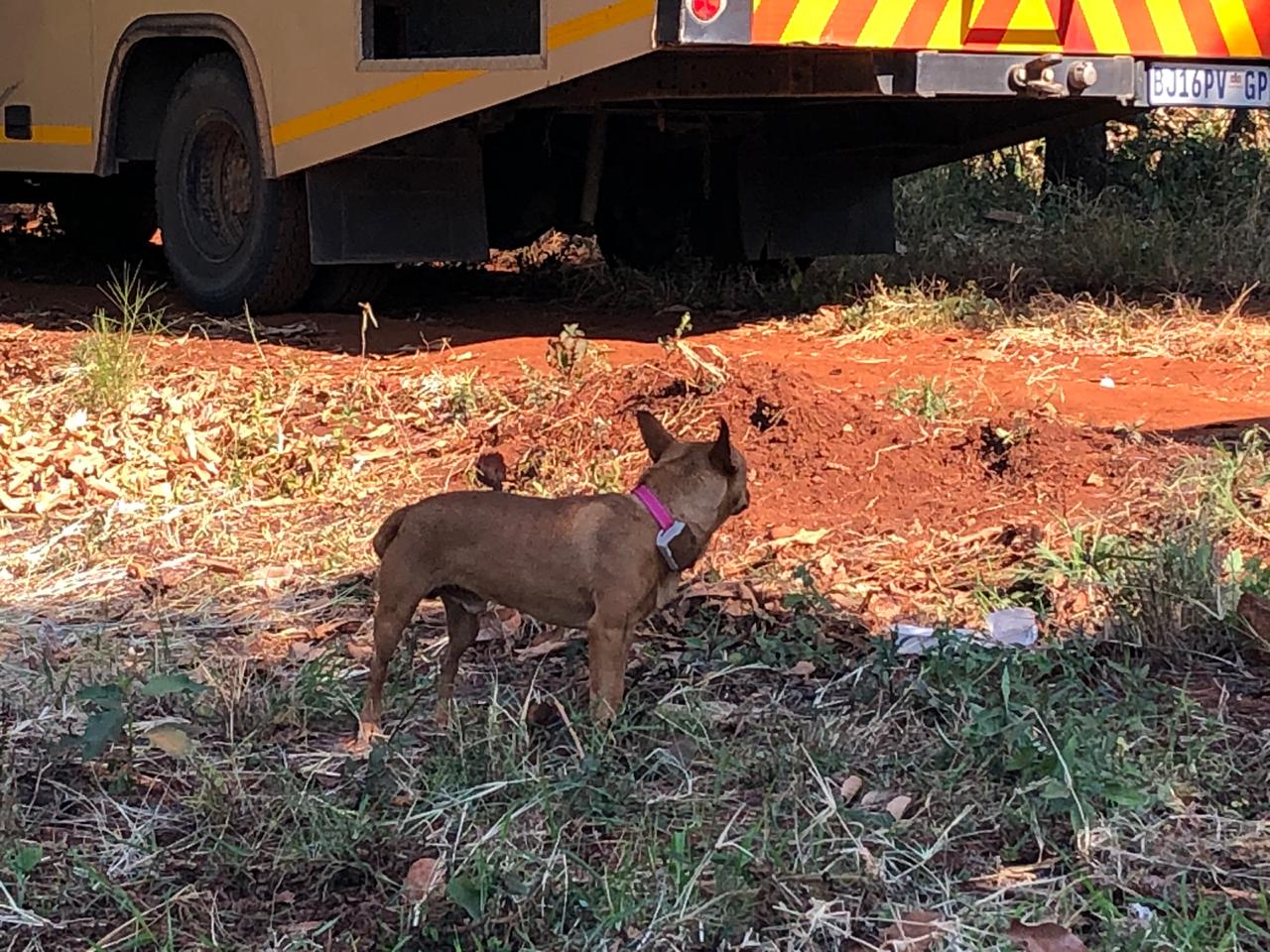
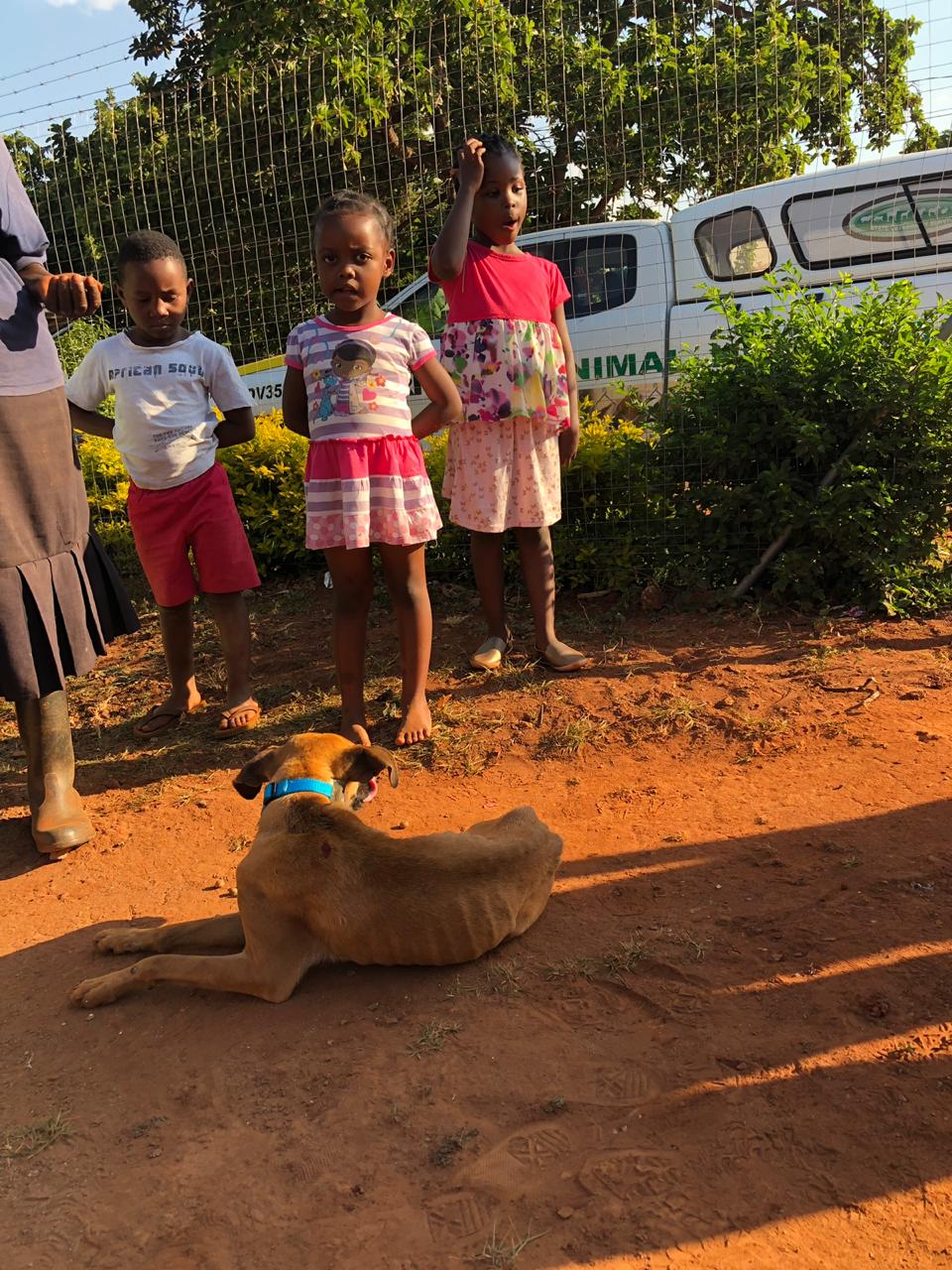
April 2019
A new collaboration between the EcoRodMan team at University of Venda and the University of Sydney, Australia is carrying out research to look at the impact of personality on rodent behaviour, particularly personality traits and risk-taking behaviours of rodents exposed to the predation risk of domestic carnivores. As potential predators of rodents, domestic cats and dogs present rodents with a landscape of fear, and their presence may be utilised in rural properties and villages to aid in reducing the damage to crops and housing structures caused by pest rodent species. However, within any given population, individual animals will differ consistently in behavioural expressions, i.e. personality. Bolder or more active individuals take risks in their environment, often gaining foraging and breeding advantages, but frequently experience higher predation rates compared to shyer or less active animals. The presence of cats and dogs may therefore be less effective in deterring these bolder personality types. Mastomys natalensis and Rattus rattus are being trapped in three types of properties in a semi-rural village: those with cats, those with dogs and properties without no potential predators (control). Individual rodents are tested for personality traits using rapid assays before being uniquely marked for identification and released. Cameras placed in each property will allow for identification of individuals and film rodent behaviours at a foraging station. Videos will allow us to determine how personality traits affects risk-taking behaviours of rodents exposed to different predation threats. We hypothesise that cats and dogs will effectively deter the majority of a population and fewer animals will be detected in these areas compared to the control properties. We also hypothesise that animals that are detected in properties with cats and dogs will be bolder individuals, willing to take risks, despite the potential predation risk.
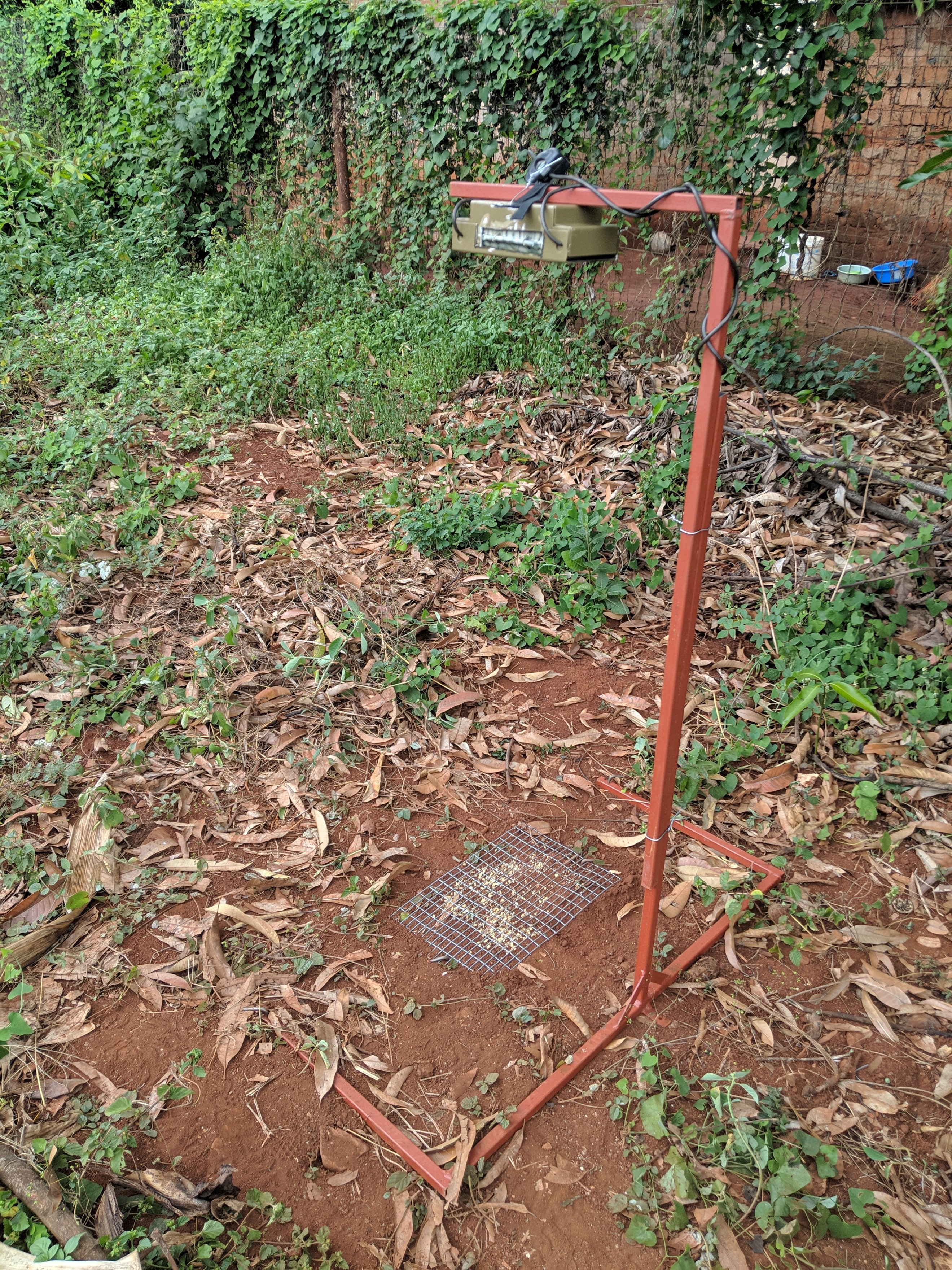
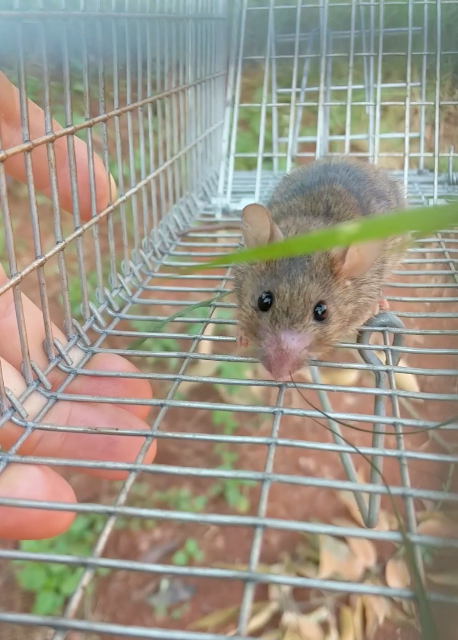
Mastomys natalensis, one of the rodent species being studied for personality traits
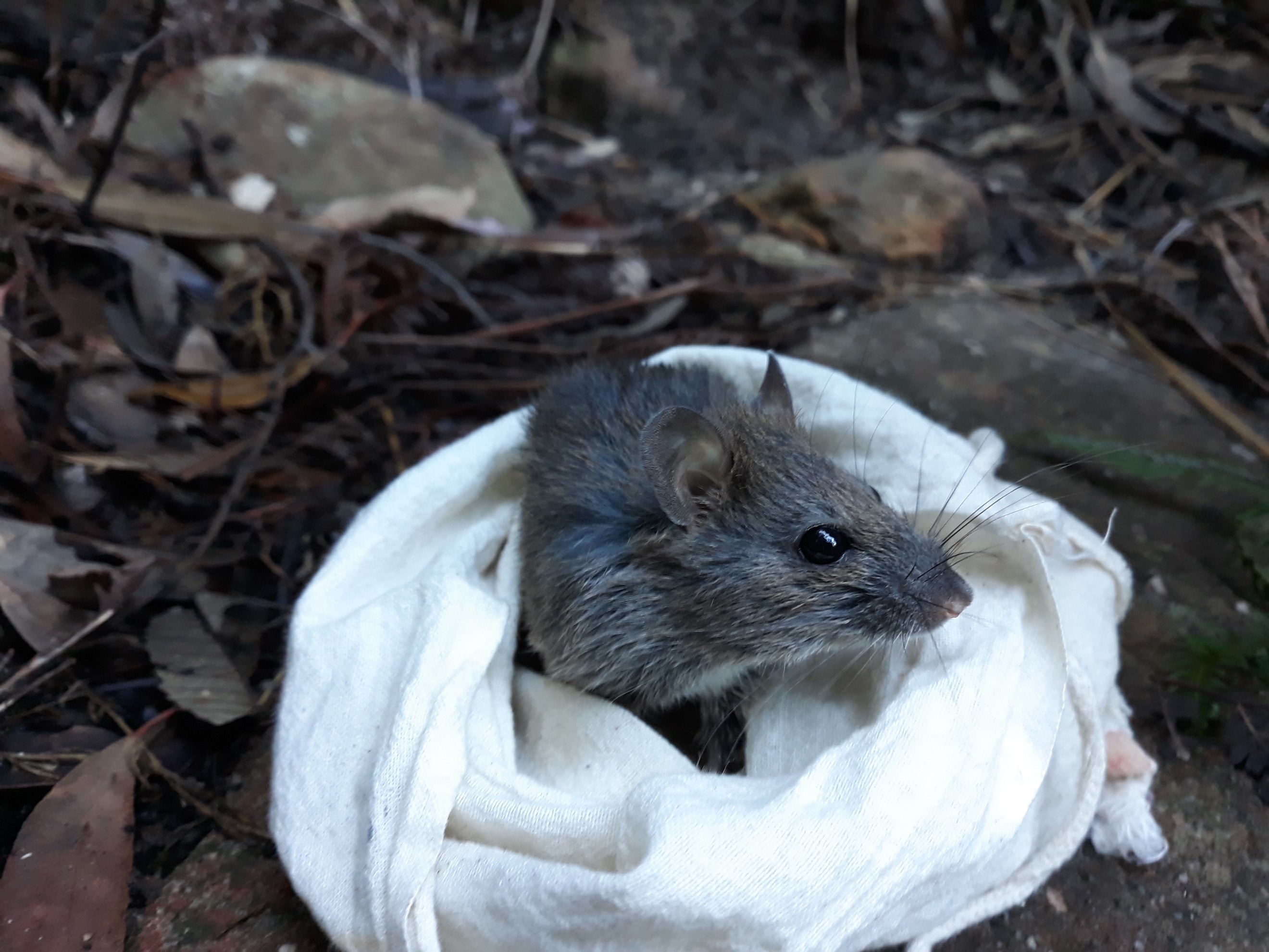
Rattus rattus, one of the rodent species being studied for personality traits
March 2019
The EcoRodMan team had a very successful first year annual review and planning meeting. The meeting was held on the shores of Lake Victoria in Entebbe, Uganda and hosted by Busitema University. The team reviewed activities from the past year and developed research protocols for new field work activities. The project team has made good progress over the first year, with activities taking place across all workpackages.
The EcoRodMan team took part in a World Health Organisation Expert Meeting in Peru entitled ‘Innovative control approaches for rodent-borne epidemic diseases and other public health consequences of rodents’ proliferation’. Prof Belmain provided a keynote overview about the impact of rodents on people's livelihoods. The EcoRodMan team plans to work closely with this WHO initiative to develop new guidelines and training materials to assist countries to prevent disease outbreaks caused by rats.
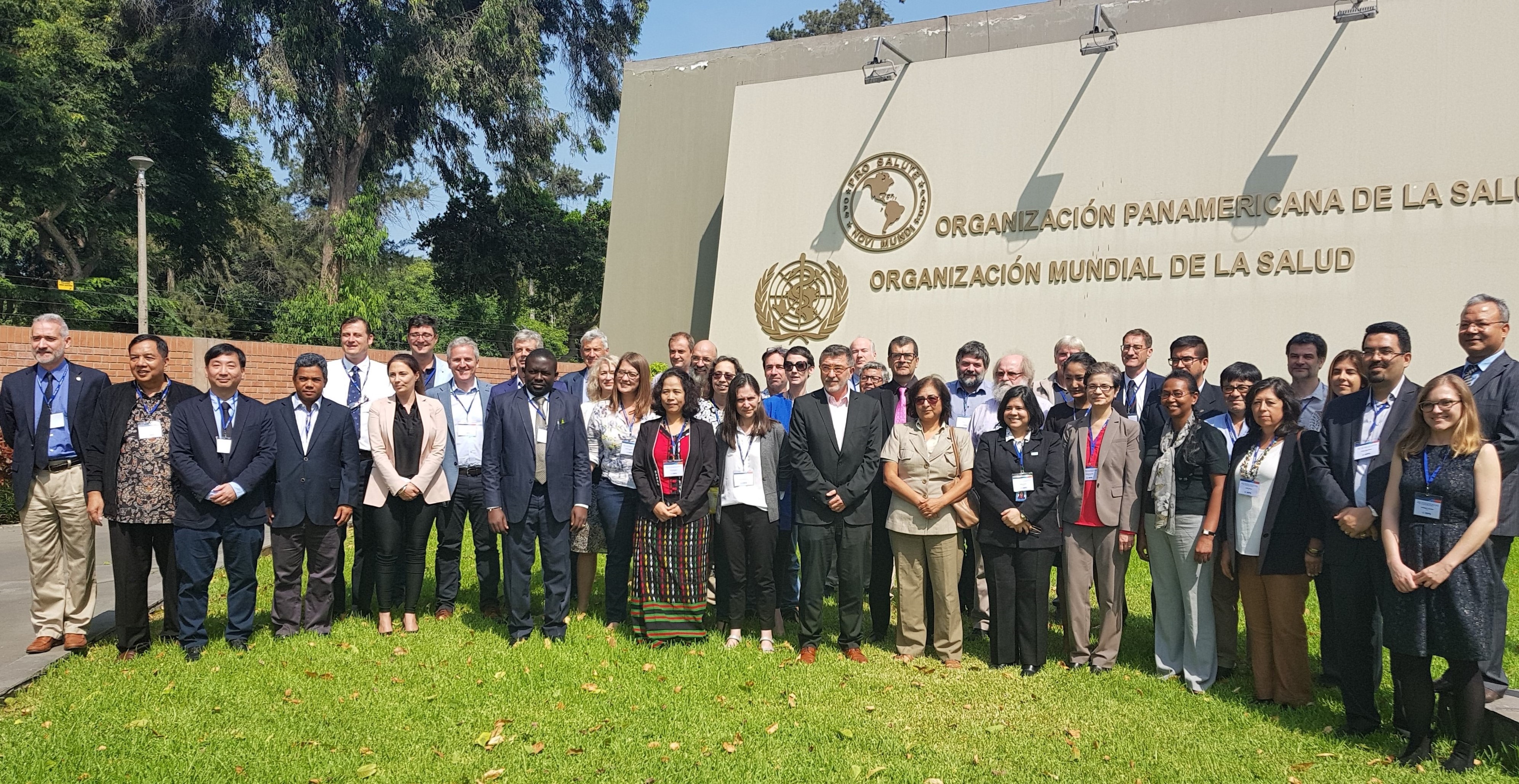
February 2019
Researchers from the EcoRodMan team gather together for a special Mini-symposium on Rodents From Challenging Environments and a training workshop for students and early career researchers on Advances in Morphometrics, both of which were partly sponsored by the EcoRodMan project. The events brought together scientists from EcoRodMan partners in Namibia, South Africa and Swaziland along with researchers from Kenya, Zambia, Cameroon, Canada and France. The book of abstracts from the mini-symposium can be found here.
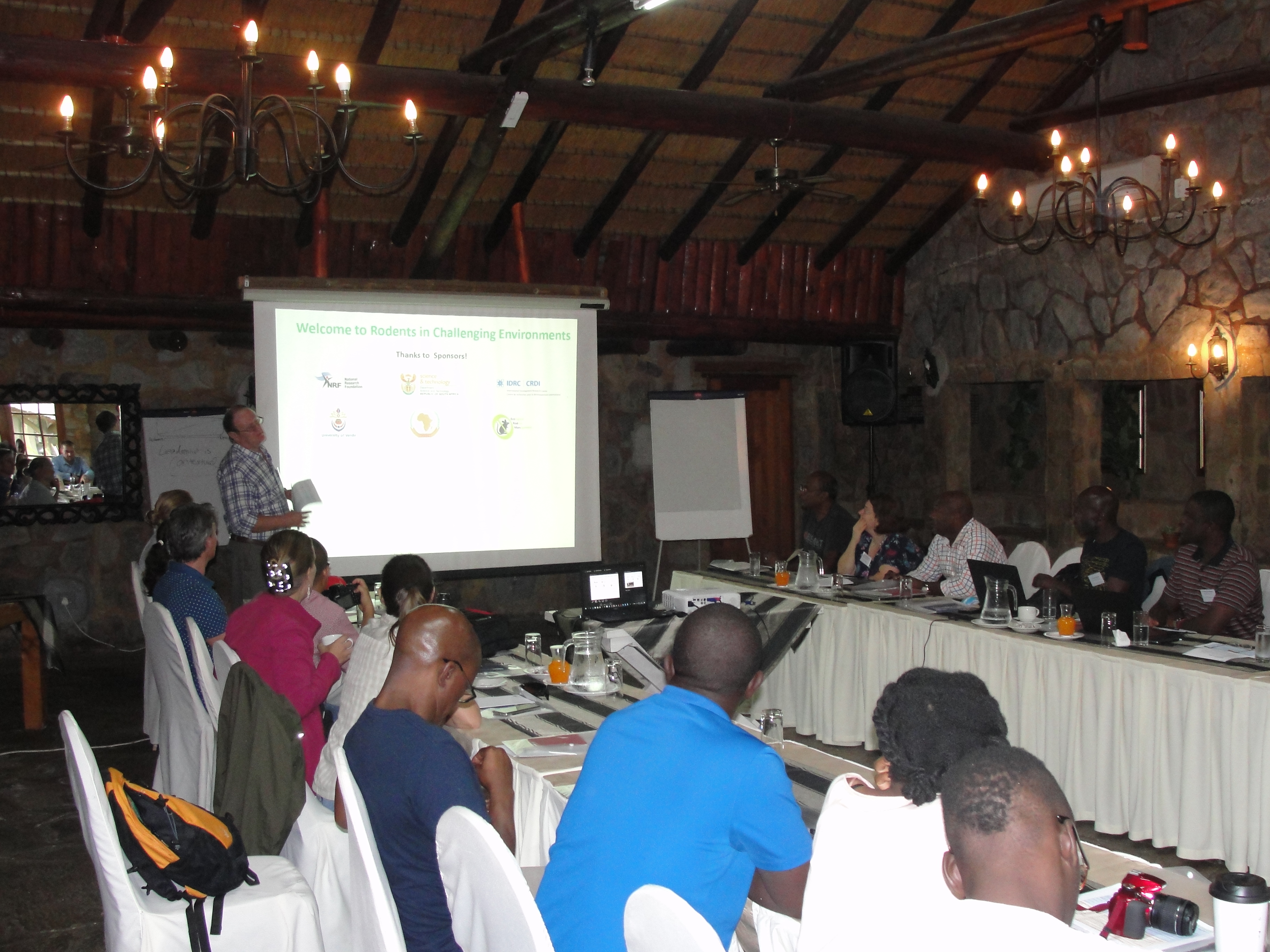
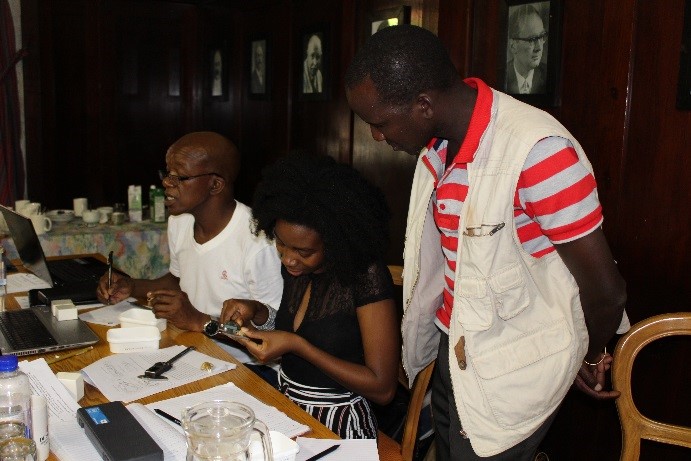
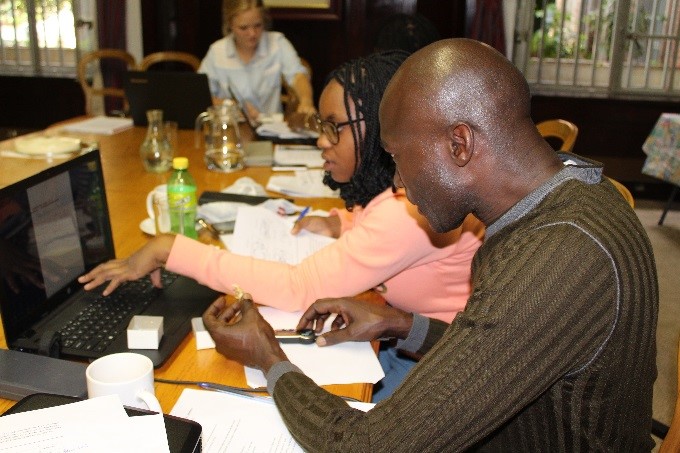
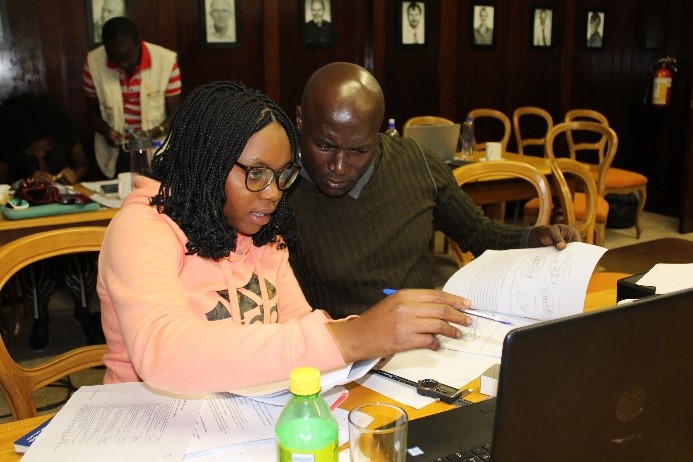
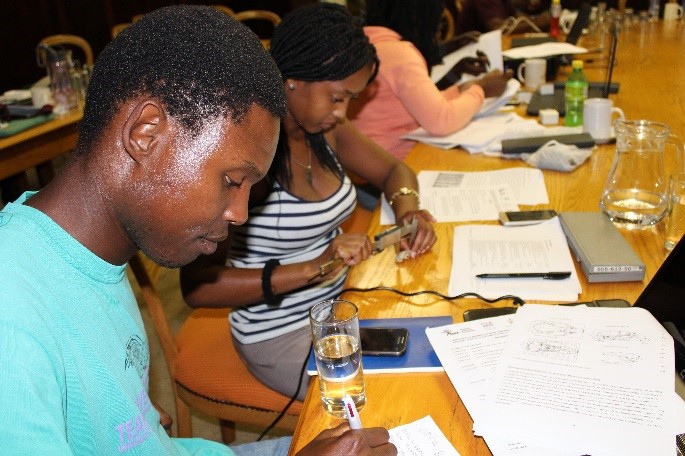
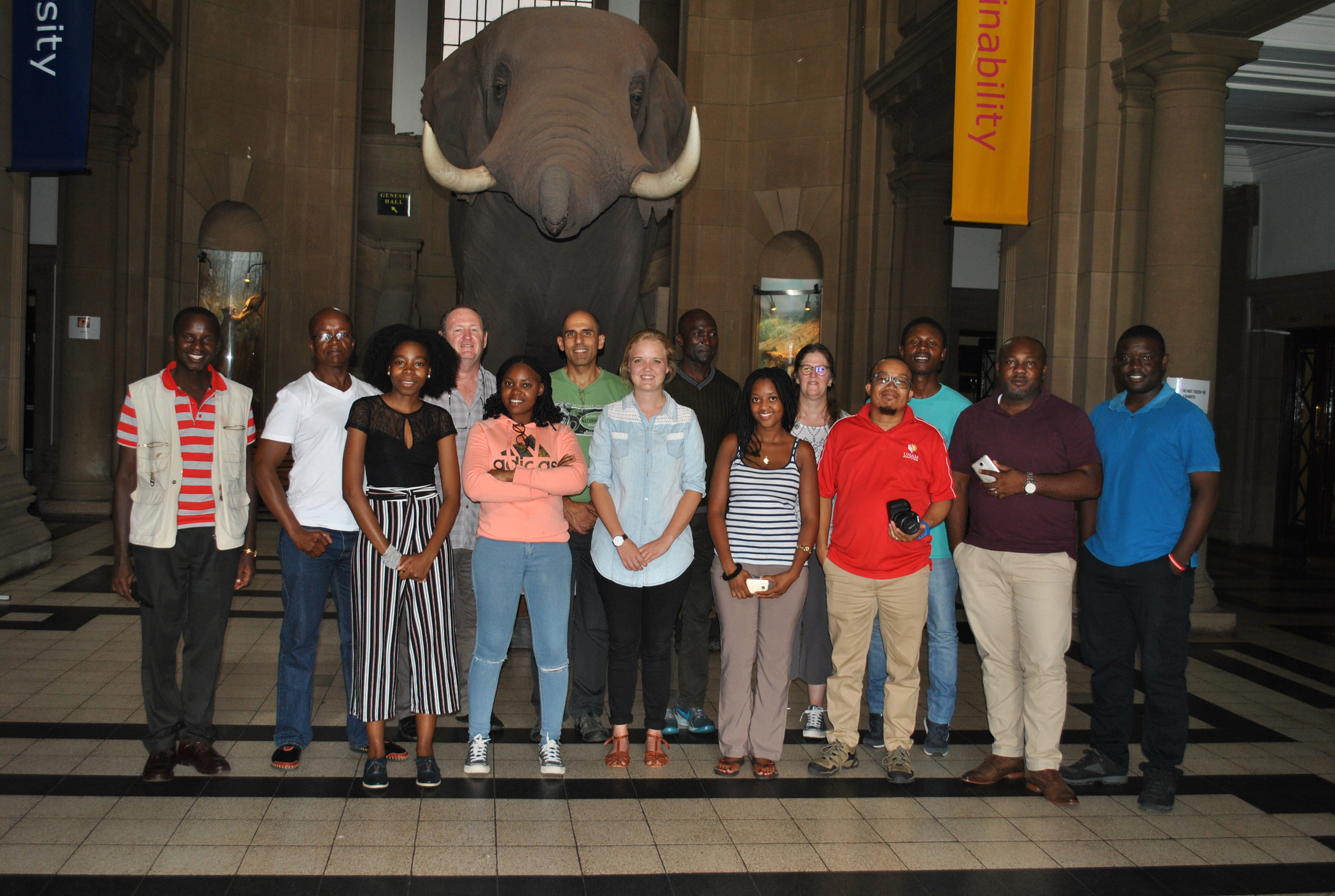
January 2019
The EcoRodMan team in Ethiopia at Mekelle University has been busy evaluating indigenous knowledge on the use of plants against rodent pests. The team have been working with plant species identified by local communities which are claimed to repel or kill rodents. Through a series of trials carried out in the field and in the laboratory, rats are being monitored using camera traps to see whether they eat bait incorporating the plants as well as monitoring rodent behaviour.
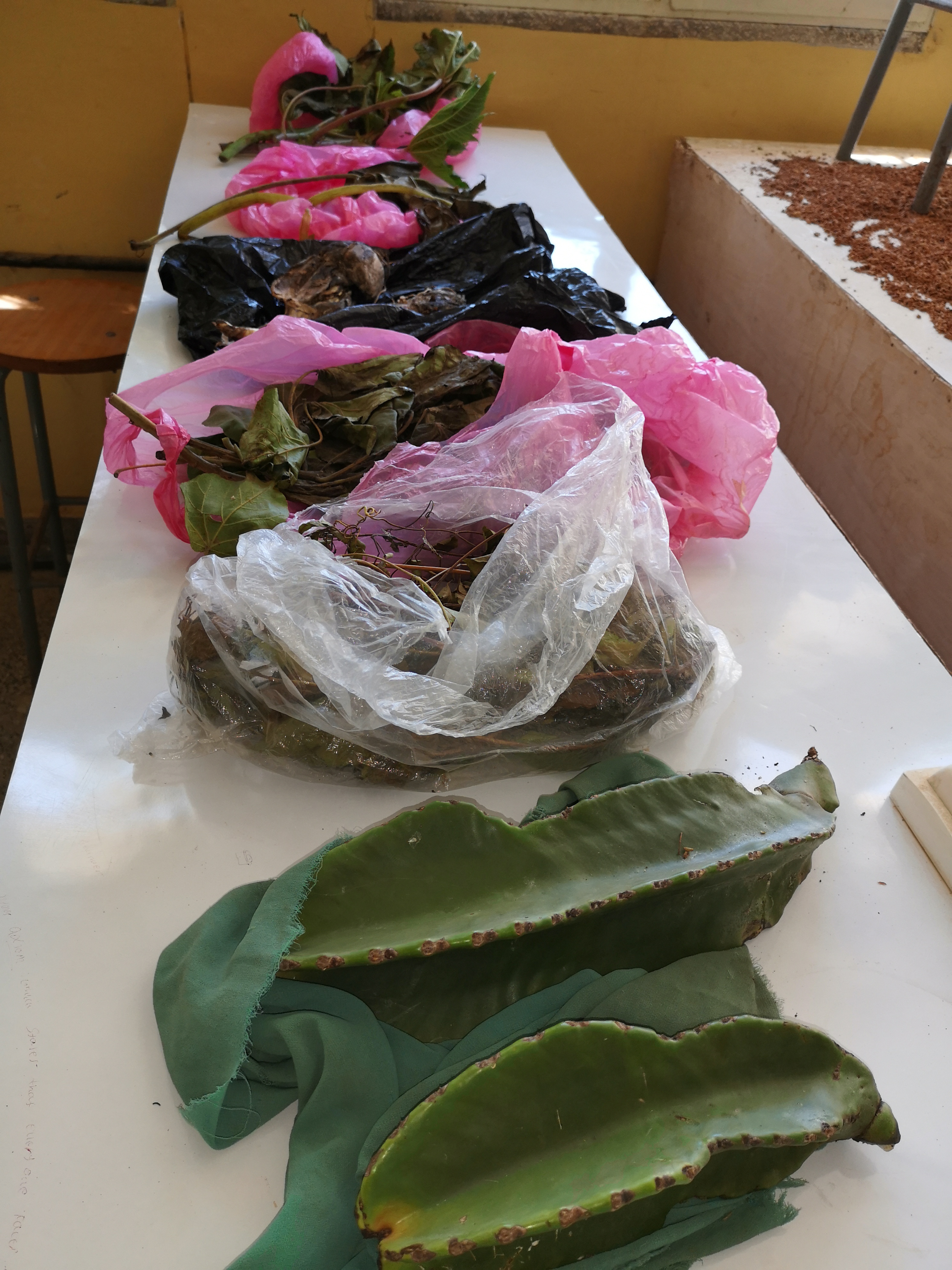
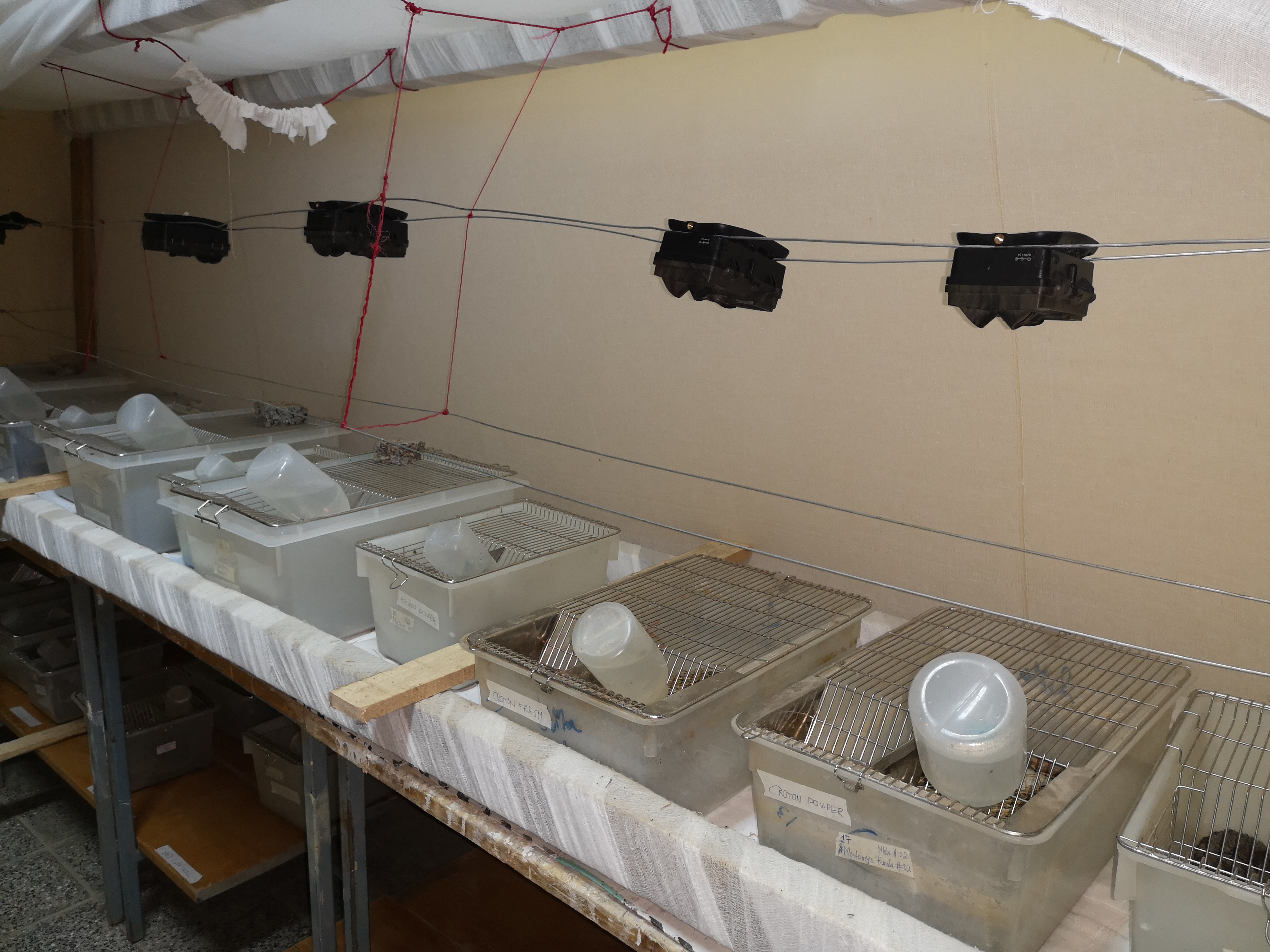
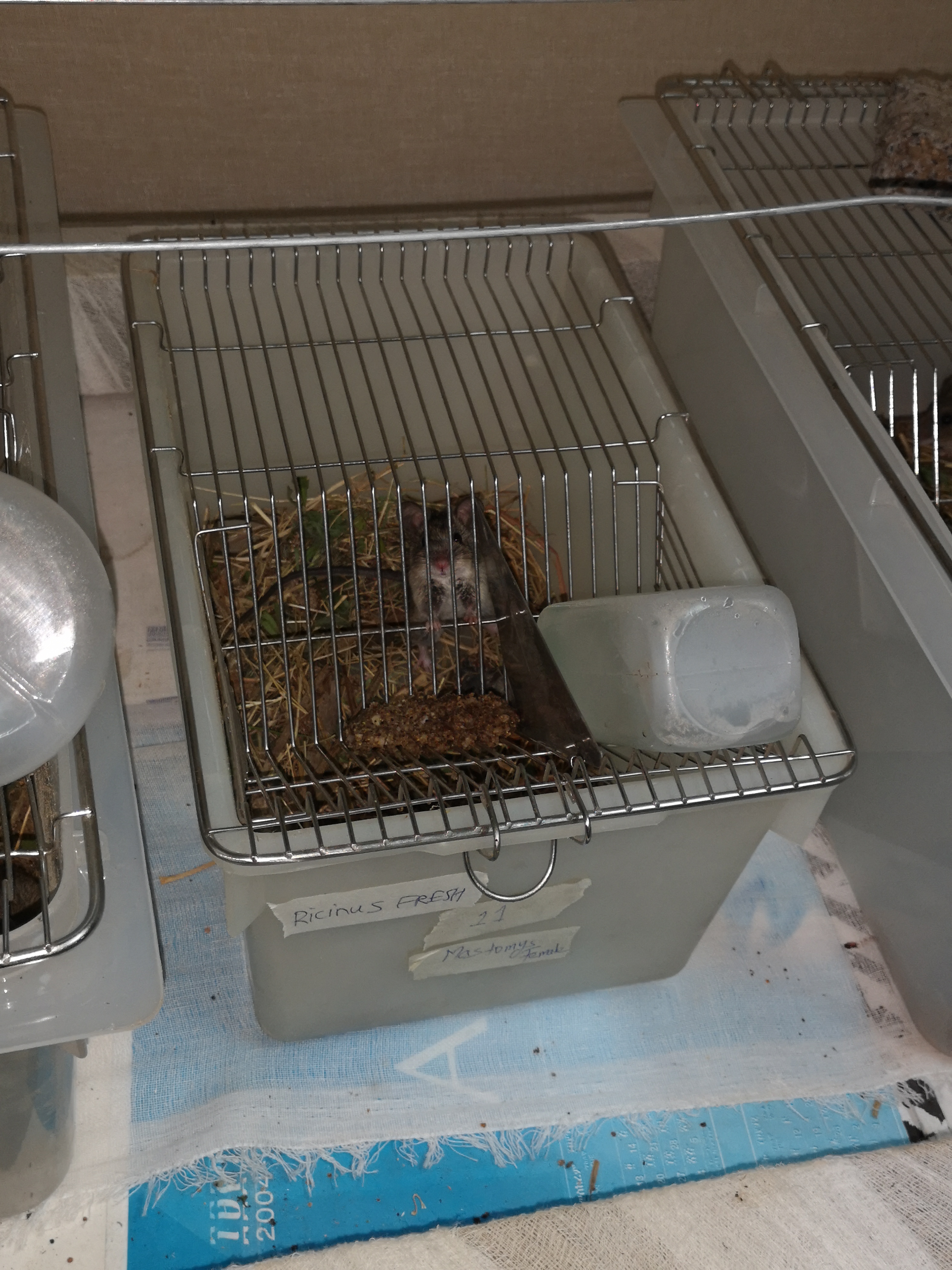
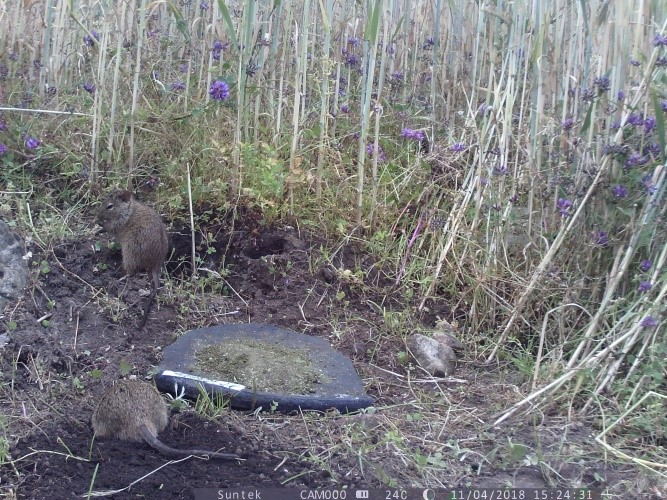
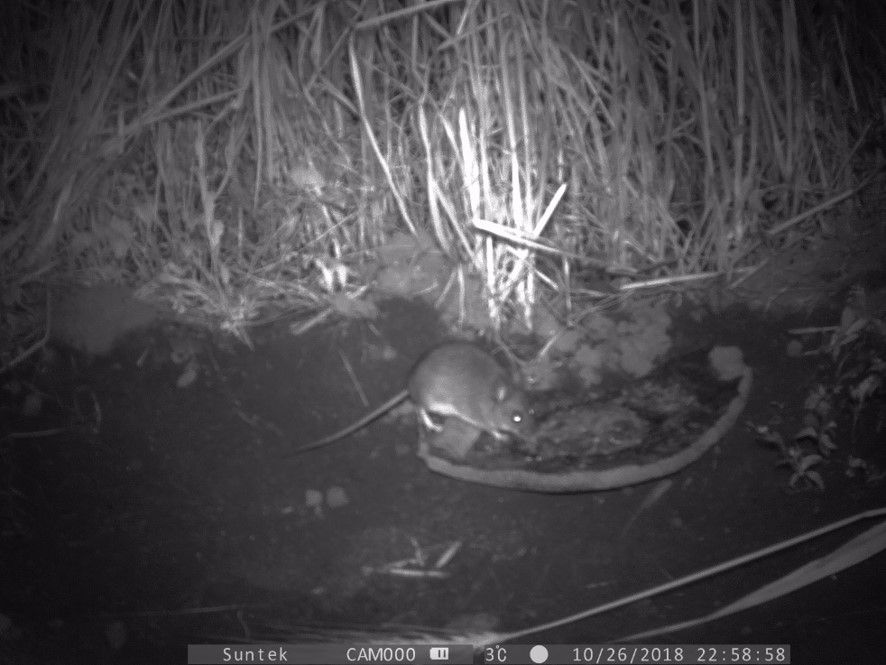
December 2018
The EcoRodMan team in Tanzania prepares for the agricultural season by holding meetings with smallholder farming communities that will be involved in the evaluation of fertility control products.
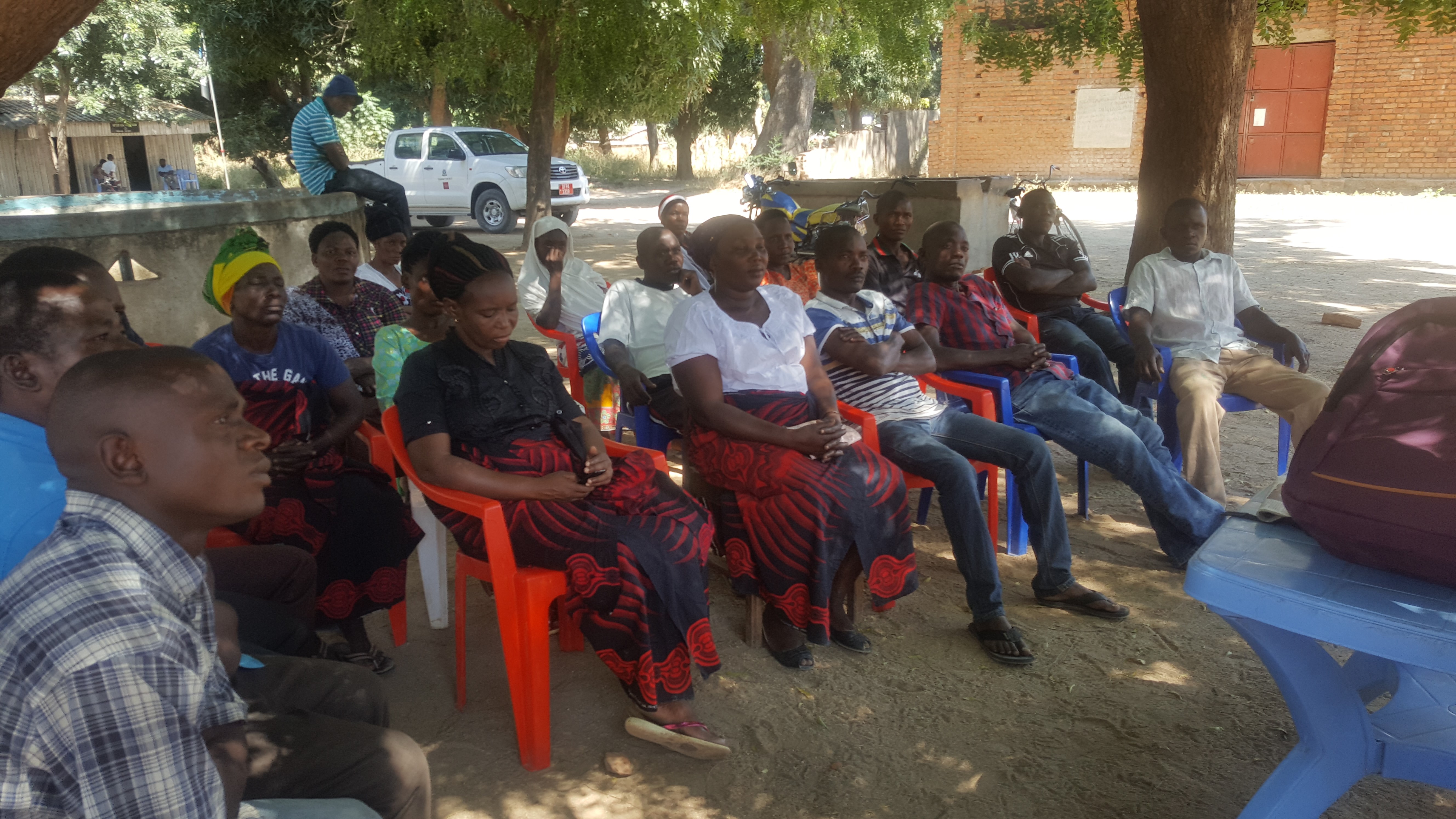
November
The Swaziland team (country now known as eSwatini) erects owl boxes on smallholder maize farms. The sites will be monitored for occupations by owls and once enough of the boxes have resident owls in them, studies of their impact on rodents and crop damage will begin.

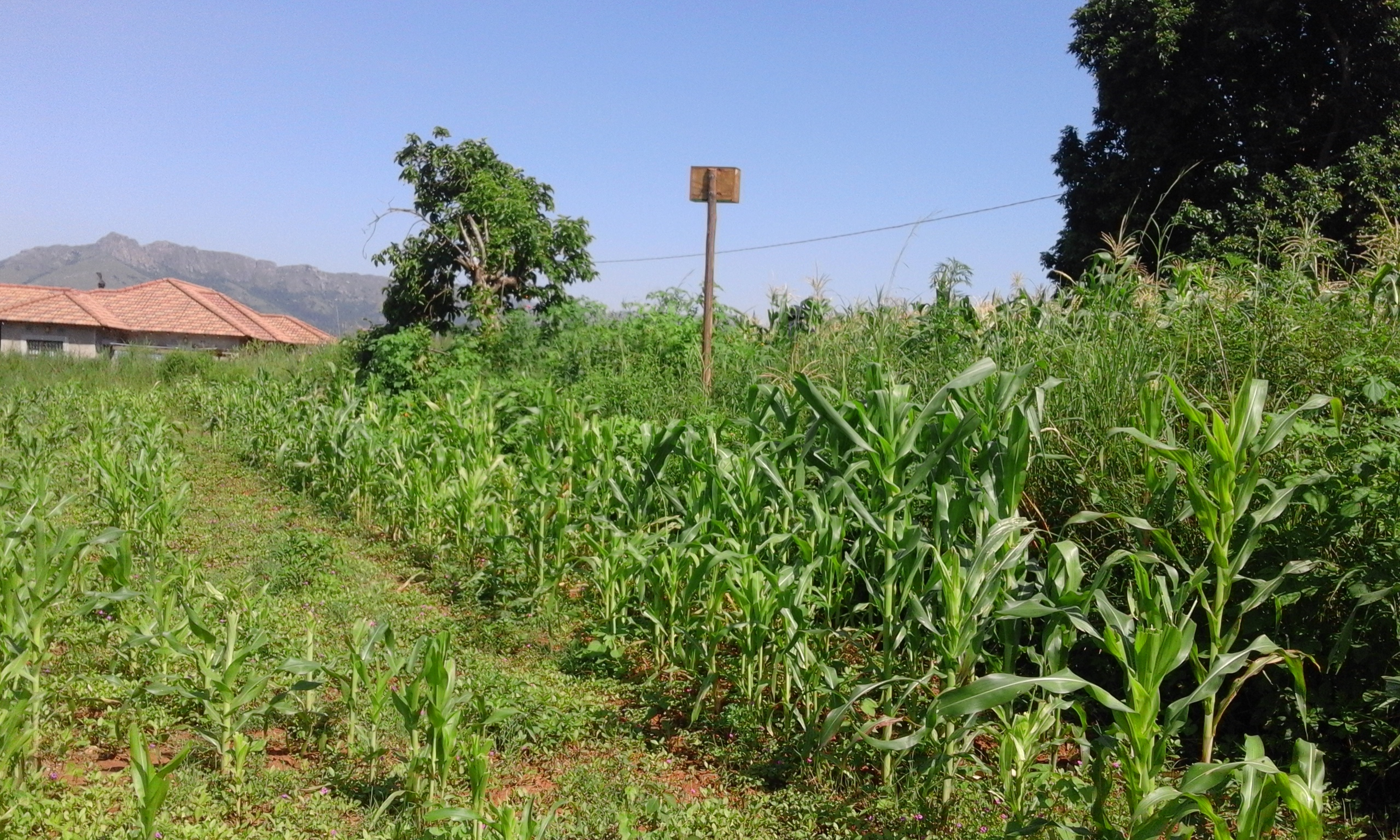

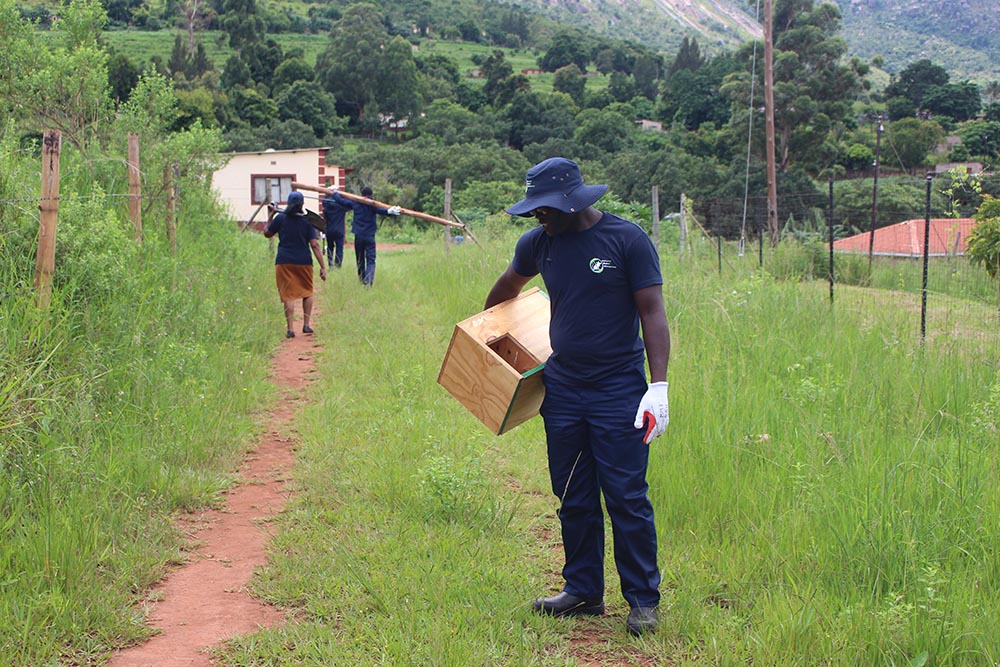
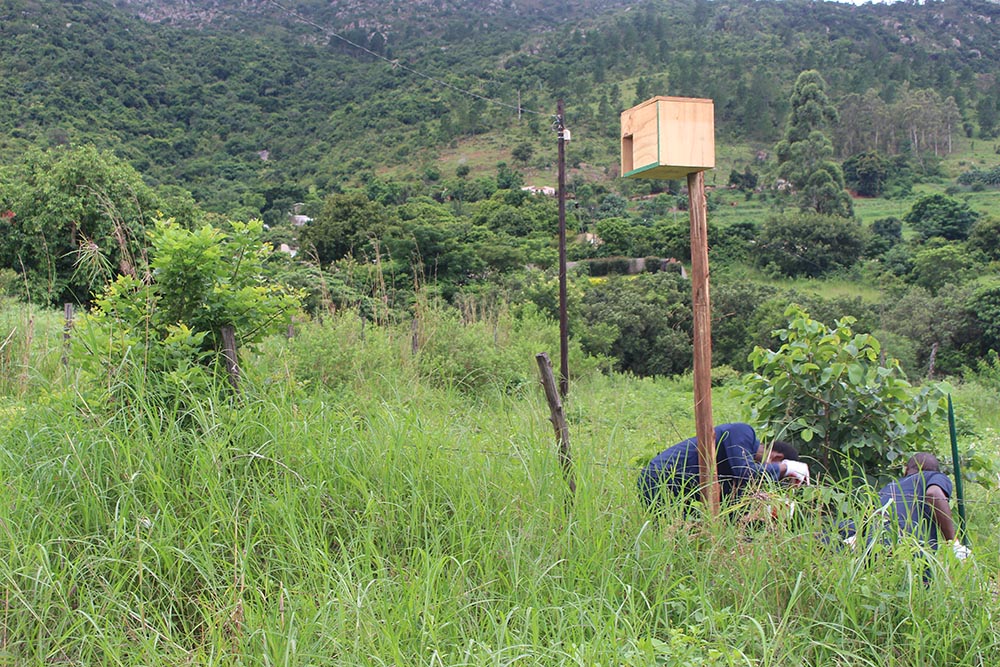
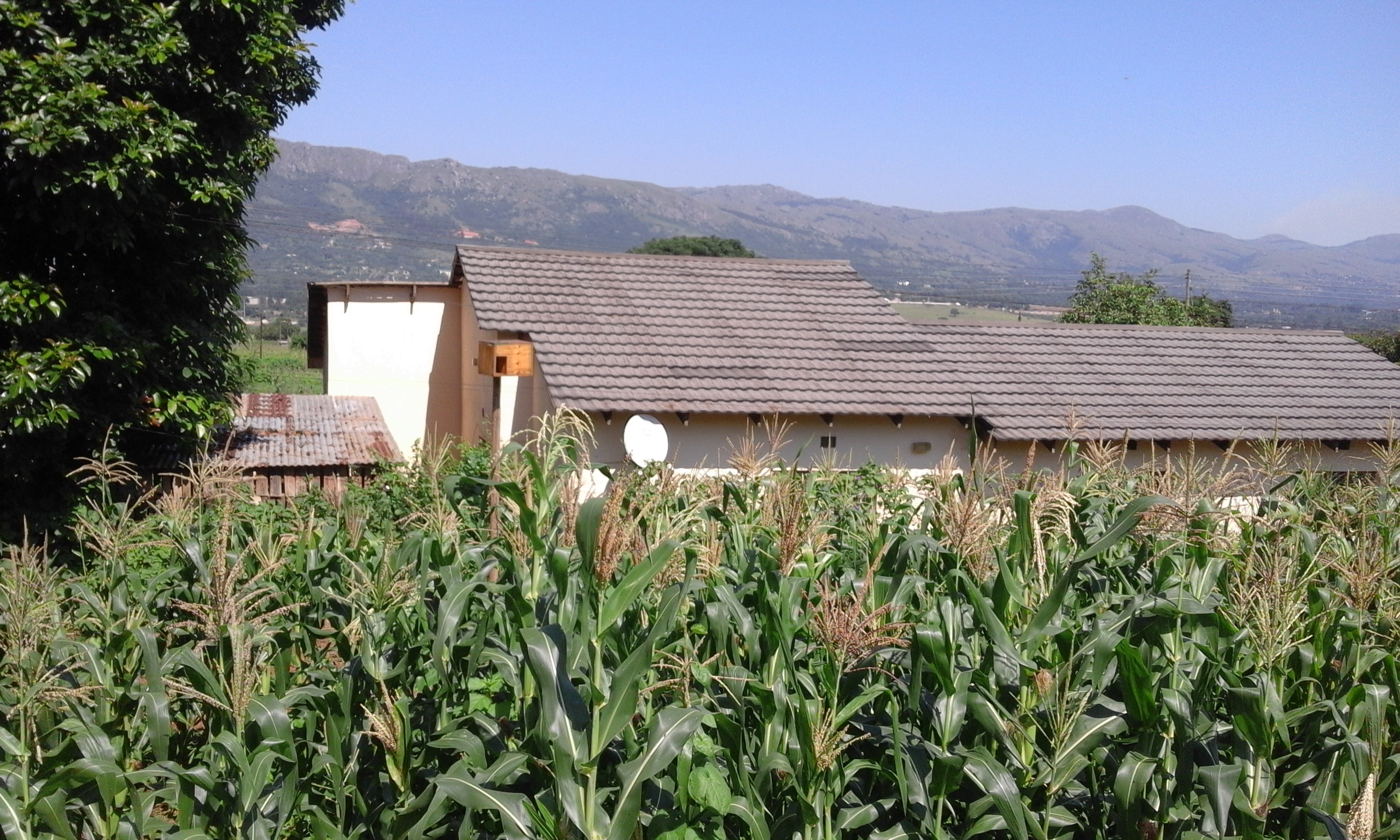
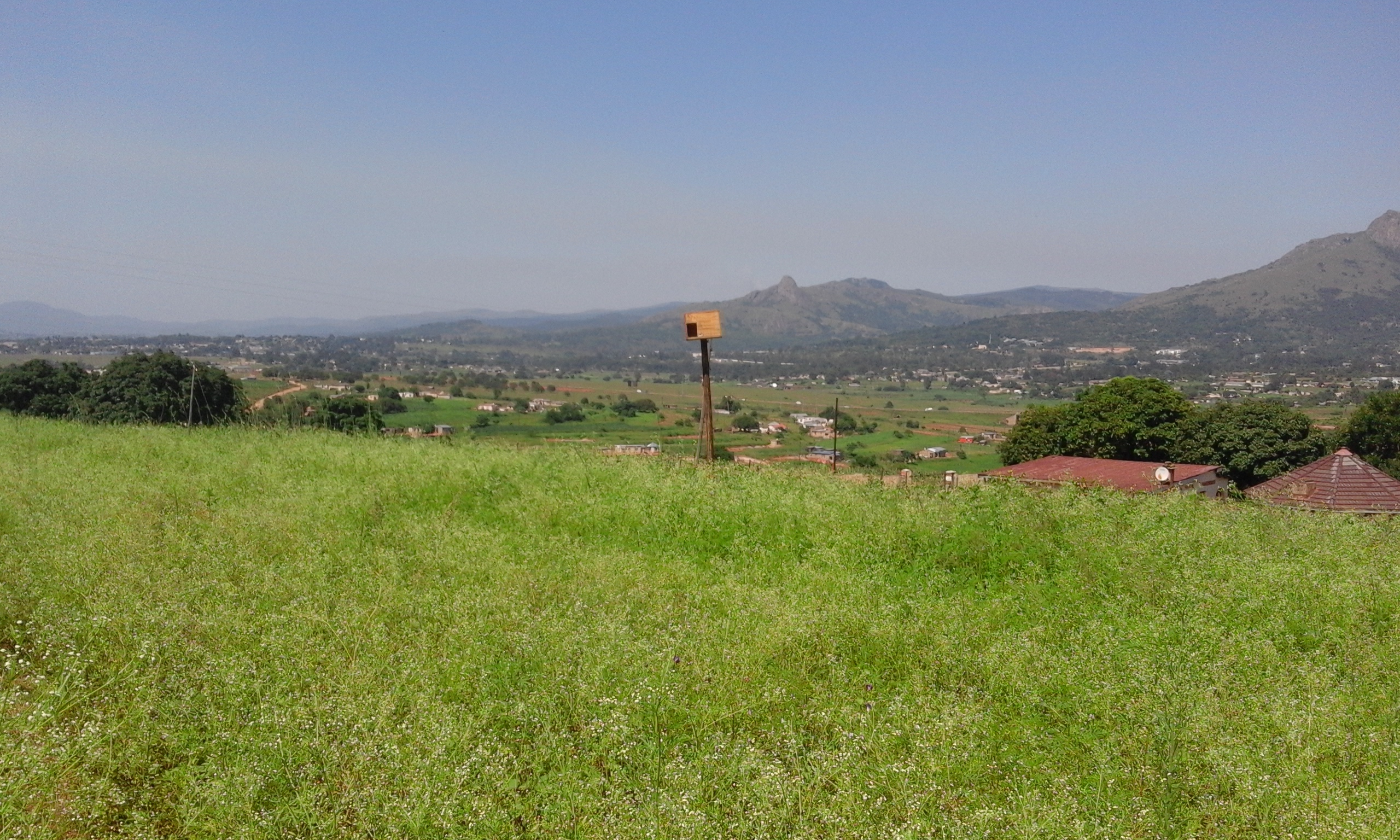
October 2018
Attracting owls to farming areas can be facilitated by providing nesting sites, and EcoRodMan colleagues at the University of Swaziland have been building owl boxes as part of project research to understand the potential ecosystem services of natural predation. Mnqobi Mamba, who is a recent MSc graduate from the University of Swaziland, has nearly completed the construction of 30 owl boxes which will be deployed in smallholder farming communities in advance of the next maize cropping season. Our expectation is that a significant number of the nesting sites are occupied by barn owls, enabling the research team to understand more about the foraging behaviour of owls and rodents, particularly how rodents behaviourally respond to the presense of owls which should be increasing the landscape of fear for pest rodent species.
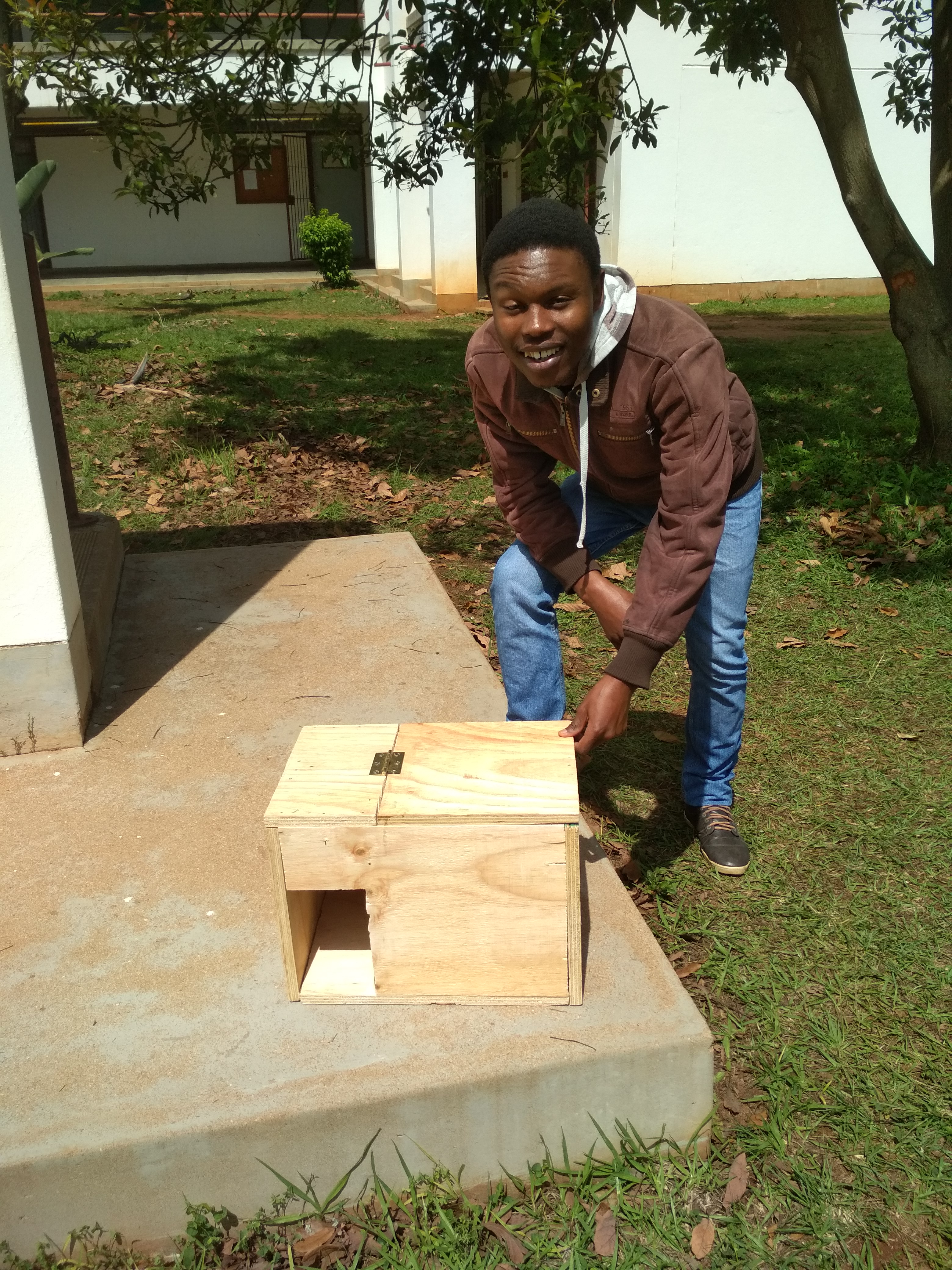
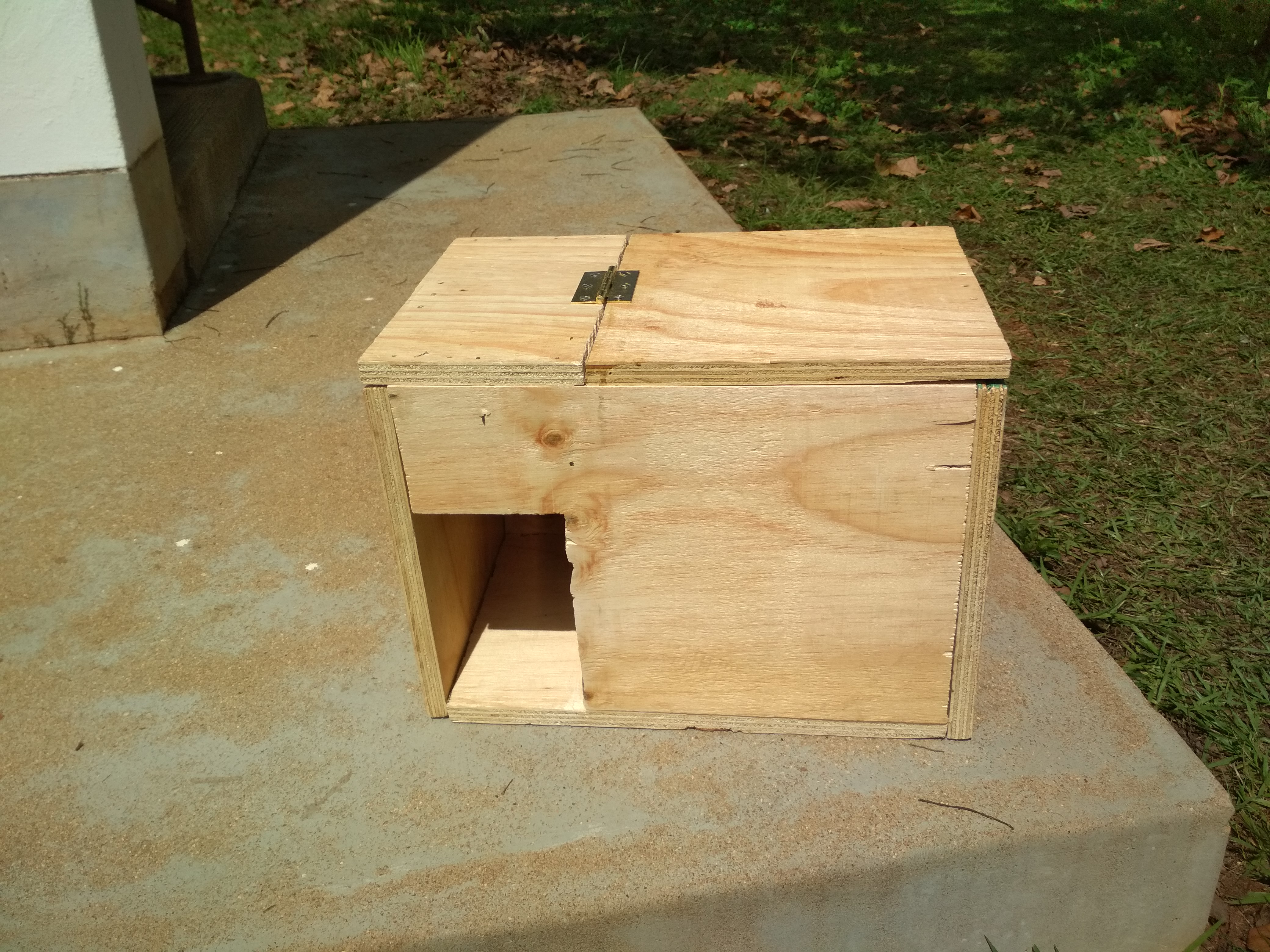
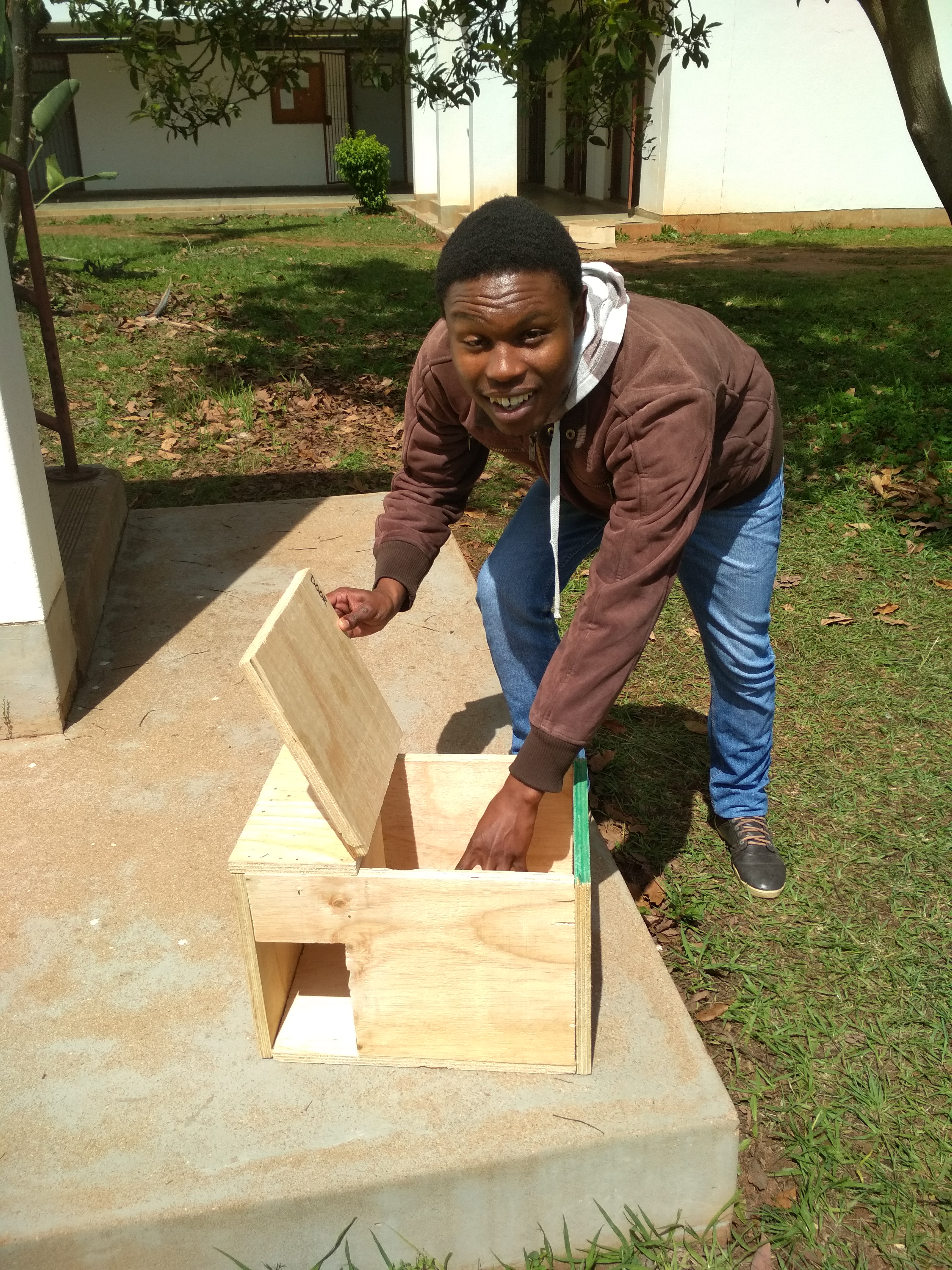
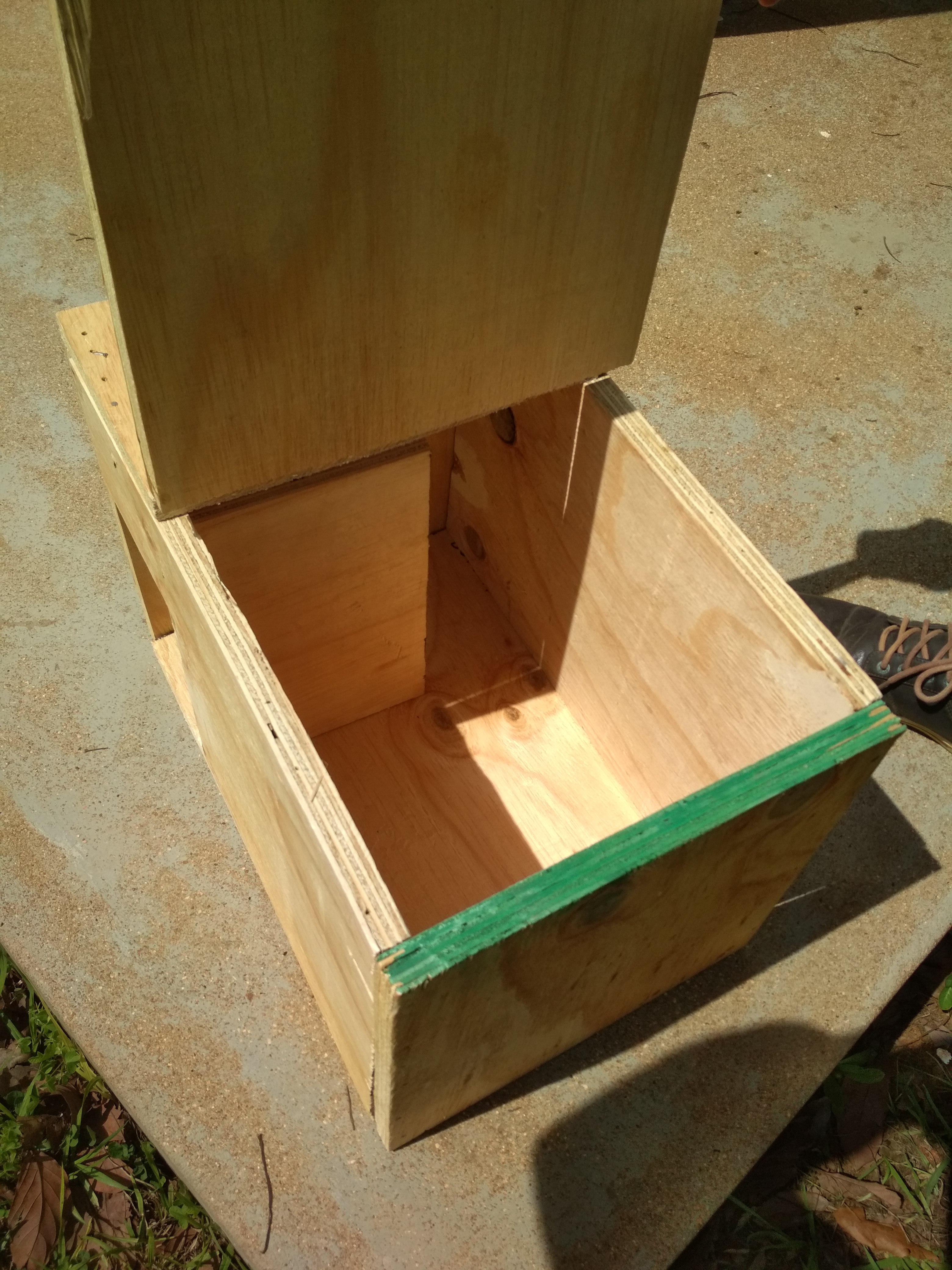
September 2018
The 6th International Conference on Rodent Biology and Management took place in Potsdam, Germany. The EcoRodMan team had a big presence at the meeting with more than 30 presentations made by various members of the team. The book of abstracts from the conference provides more details.


EcoRodMan colleague Dr Moses Isabirye from Busitema University, Uganda asking PhD student Christopher Imakando from the Univerity of Greenwich, UK about his thesis research on rodents in Zambia
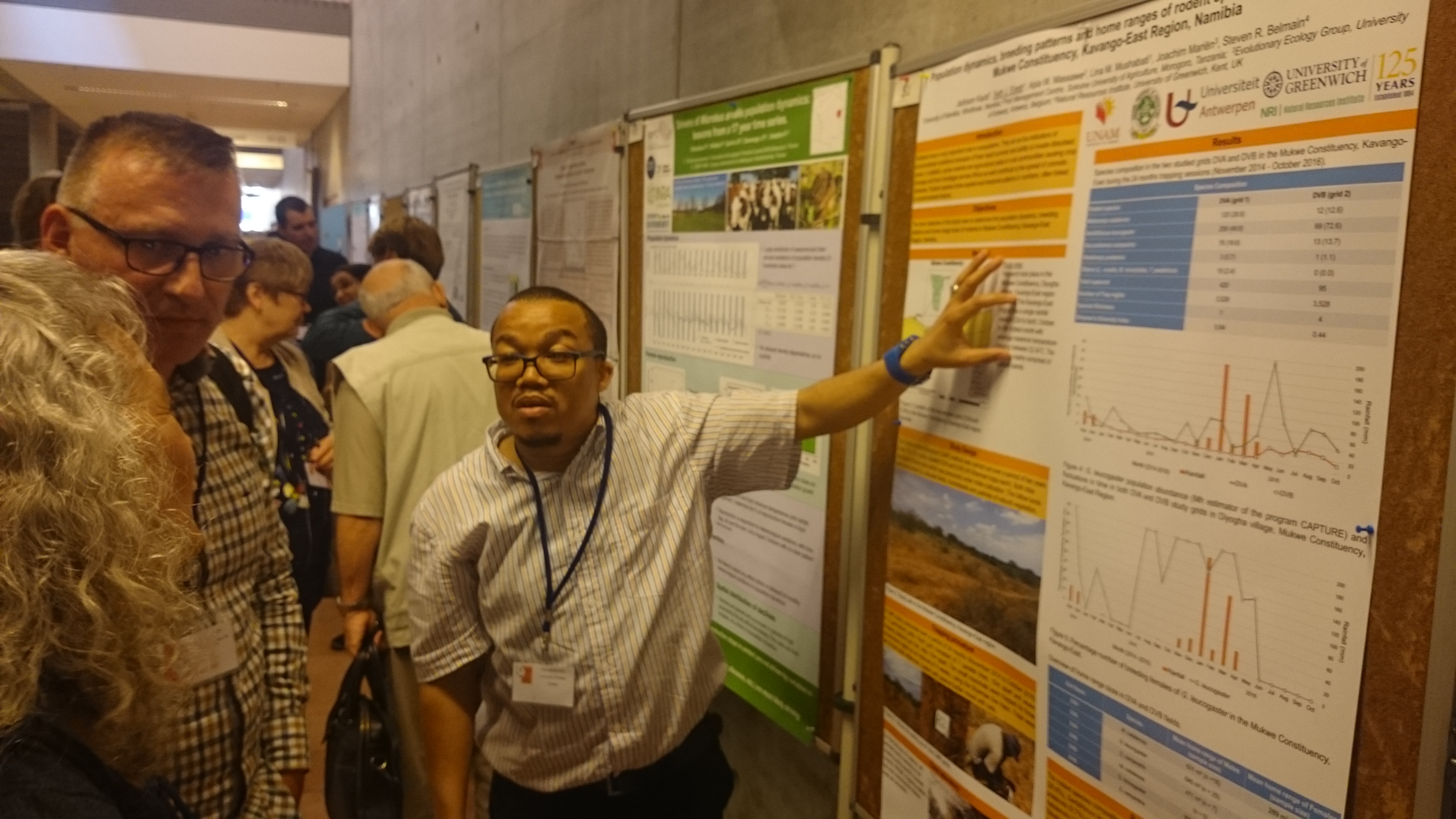
EcoRodMan colleague Dr Seth Eiseb from the University of Namibia explaining research on rodent population dynamics in smallholder farming systems in Namibia
July 2018
The EcoRodMan project collaborates with the RatTech project to deliver a training workshop at the Pest Management Centre, Sokoine University of Agricutlure with 30 new PhD students from Tanzania, Uganda, Ethiopia, Rwanda, DR Congo, Nigeria and Kenya. The workshop is led by Prof Steve Belmain from the Natural Resources Institute, UK and covers topics on ecological research methods, and scientific skills such as how to make a scientific presentation, tips and guidelines for writing peer-reviewed papers and grant proposals.
During the workshop, the rodent team met with the British High Commissioner to Tanzania, Ms Sarah Cooke, who was visiting the rodent team based at Sokoine University of Agriculture in Morogoro, Tanzania. Ms Cooke was interested in hearing about the new World Bank funded African Centre of Excellence on Rodent Management and Biosensor Technology as well as the long term collaborations between NRI and the Pest Management Centre at Sokoine University of Agriculture, particularly recent UK funding through the DFID - UK Department for International Development AgriTT programme which funded research on the development of rodent fertility control. This initial research on fertility control is being expanded in the EcoRodMan project. Ms Cooke had a tour of rodent training facilities where African giant rats are being trained to detect tuberculosis in human sputum samples.
Finally, the EcoRodMan team met with research colleagues from the Institute of Zoology, Chinese Academy of Sciences, who were visiting Tanzania for the first time. Prof Zhibin Zhang’s team carried out the first research on the development of rodent fertility control and were visiting the team as part of Chinese funded research to enable further activities that will lead to the registration and commercialisation of a fertility control product in Tanzania that can help regulate rodent population outbreaks. The team visited the village of Berega where rodent capture-mark-recapture trapping grids are evaluating rodent population densities after contraceptive baits have been placed in farmers’ maize fields.
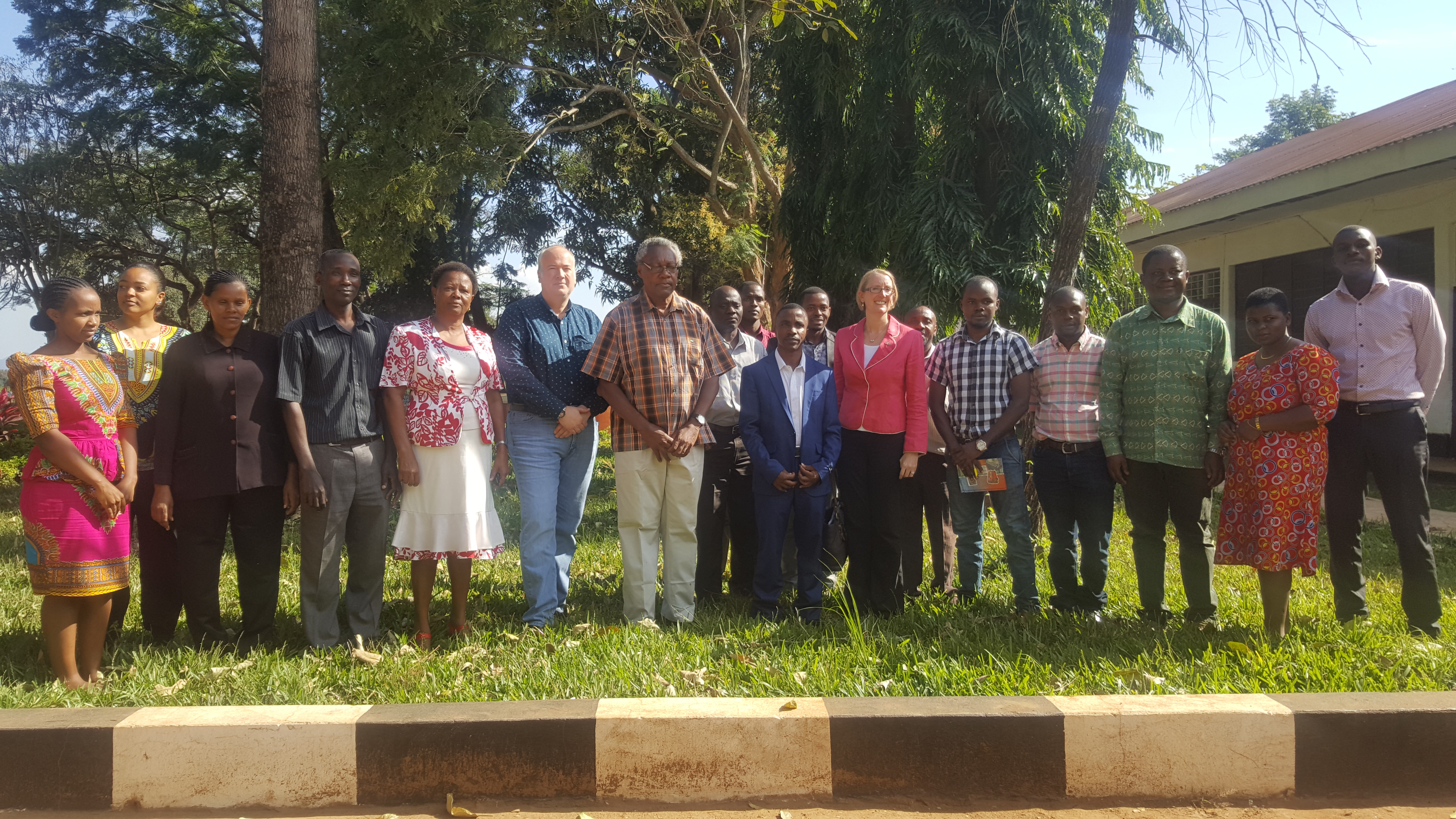
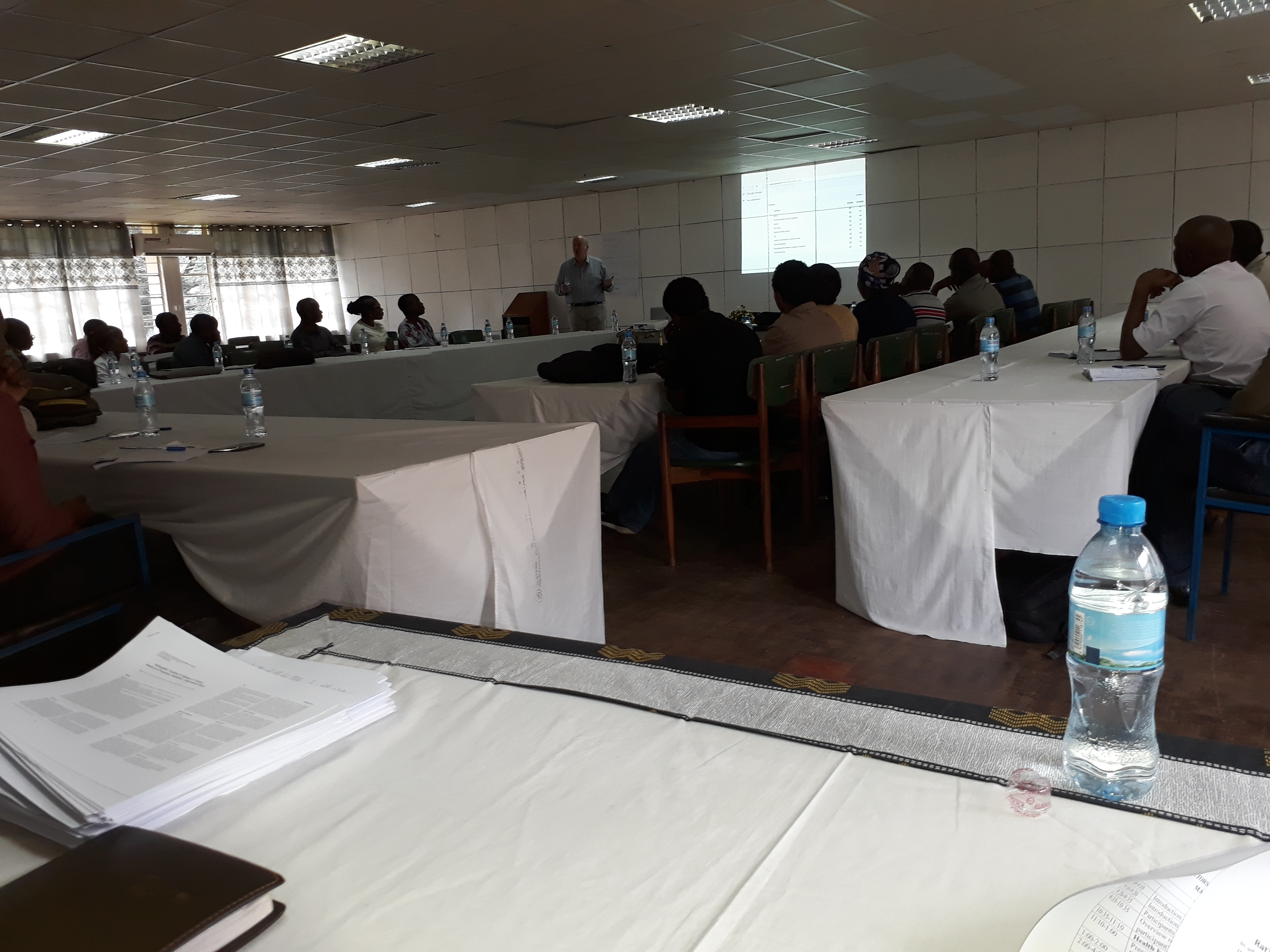
First announcement for the 13th African Small Mammal Symposium, which will be hosted by EcoRodMan partner Yonas Meheretu at Mekelle University in Ethiopia, 16-21 September 2019.
April 2018
The EcoRodMan team assembles in London for the project launch meeting at the University of Greenwich. Detailed plans for activities are discussed, with protocols developed and agreed.

February 2018
The EcoRodMan project is officially selected and awarded a three year contract by the African Union to carry out research on ecologically based rodent pest management.
